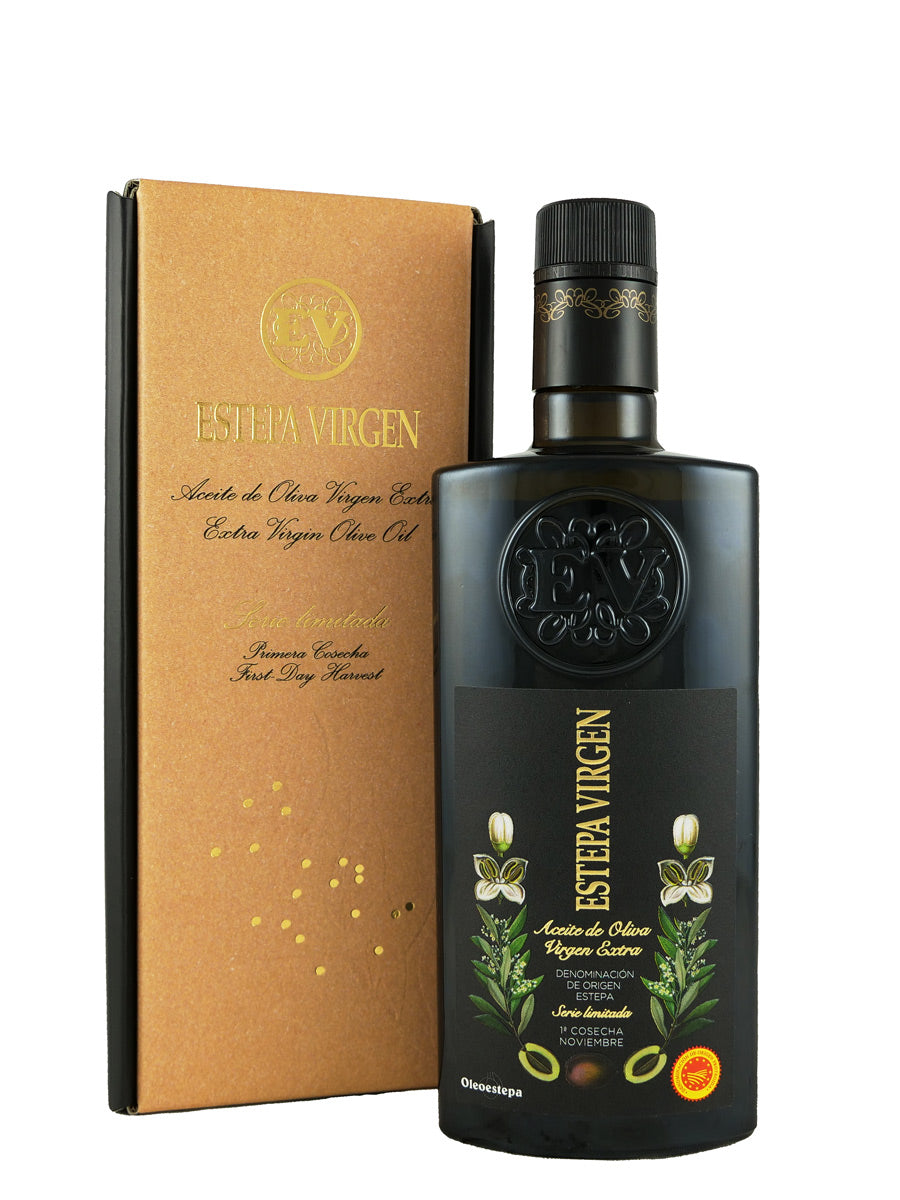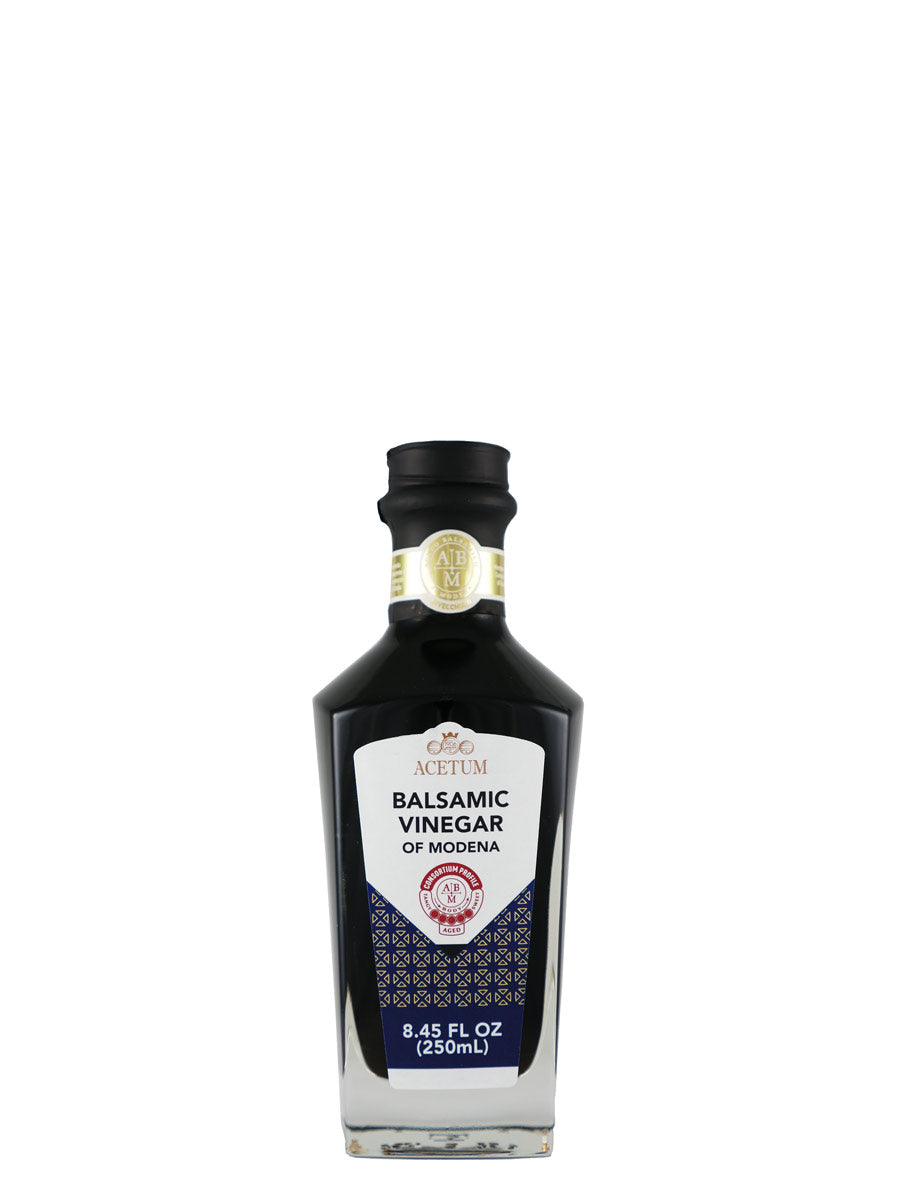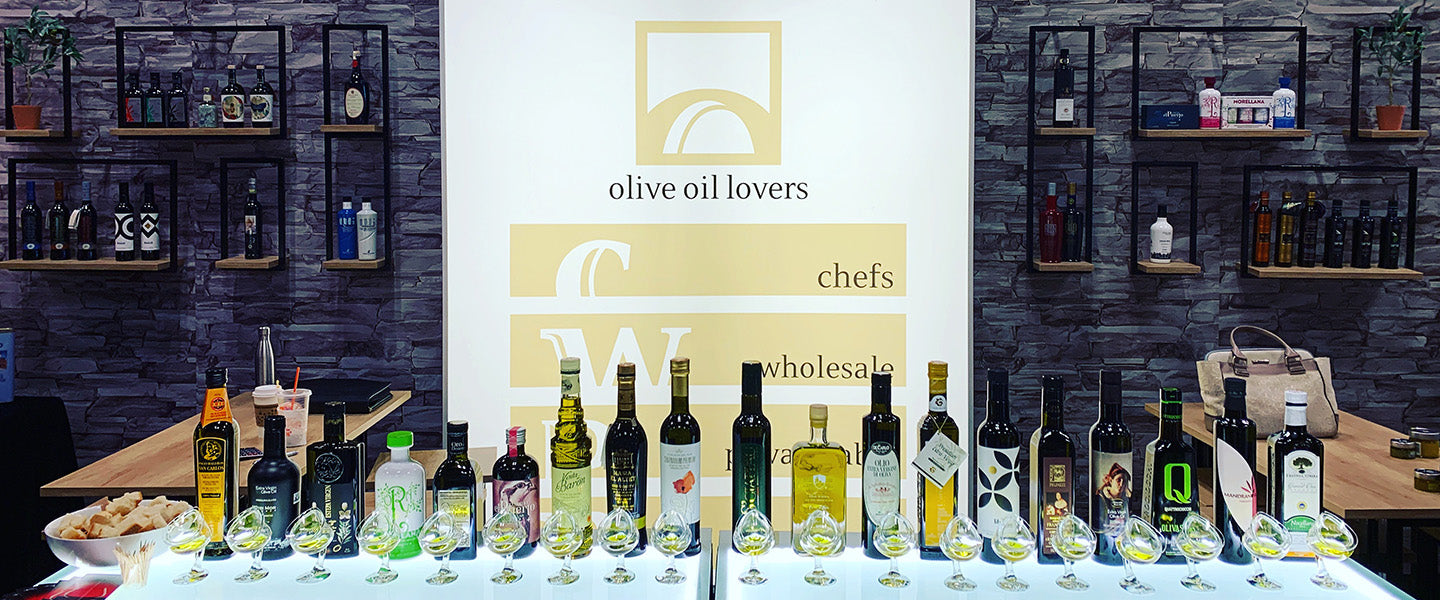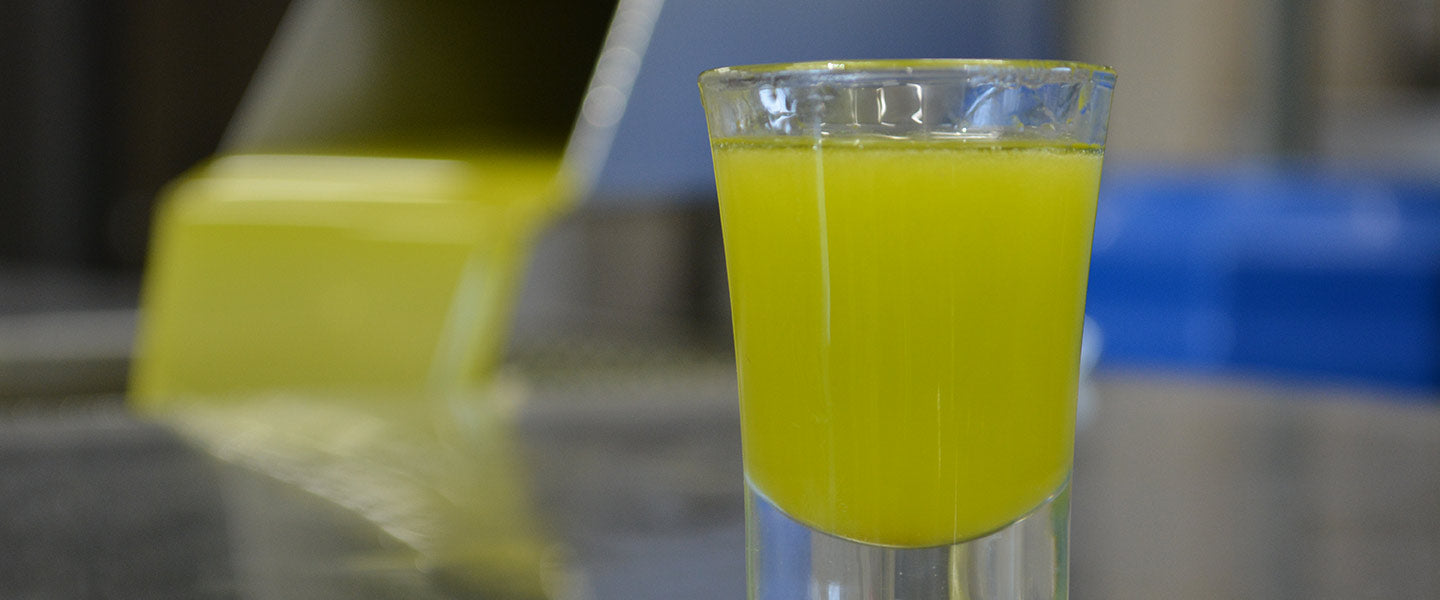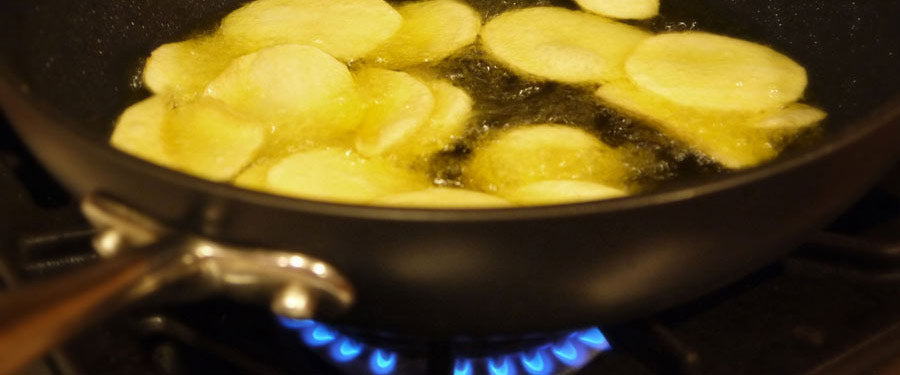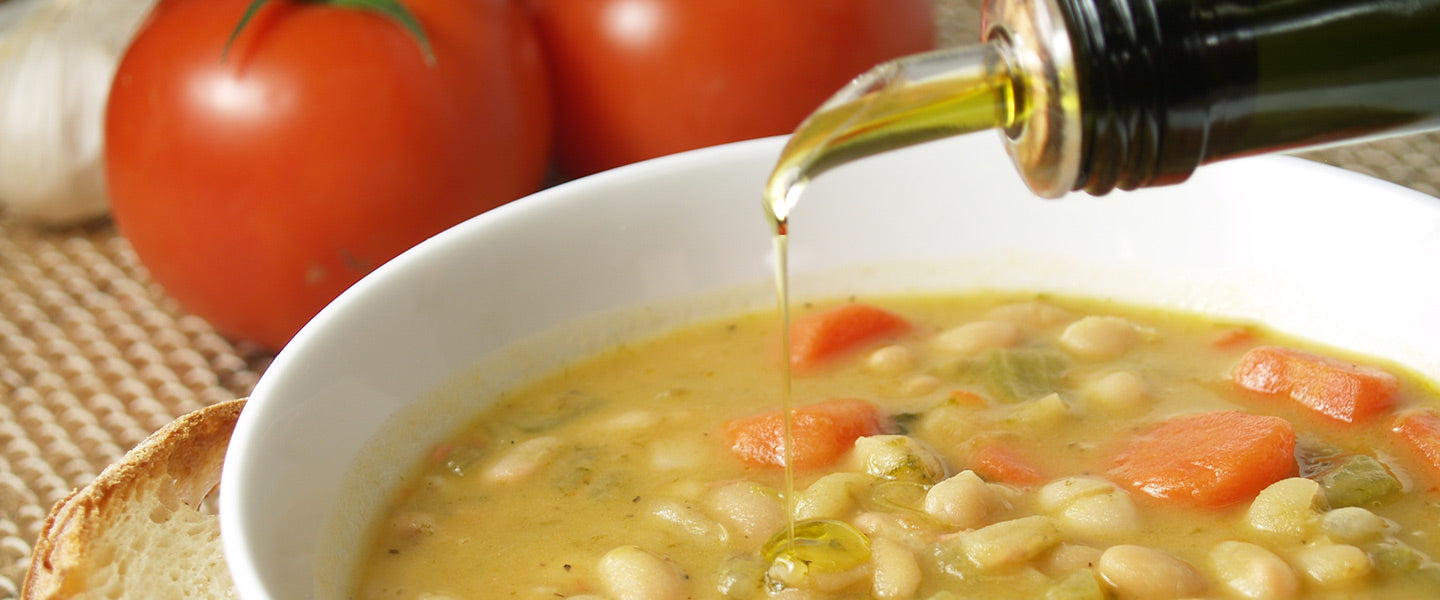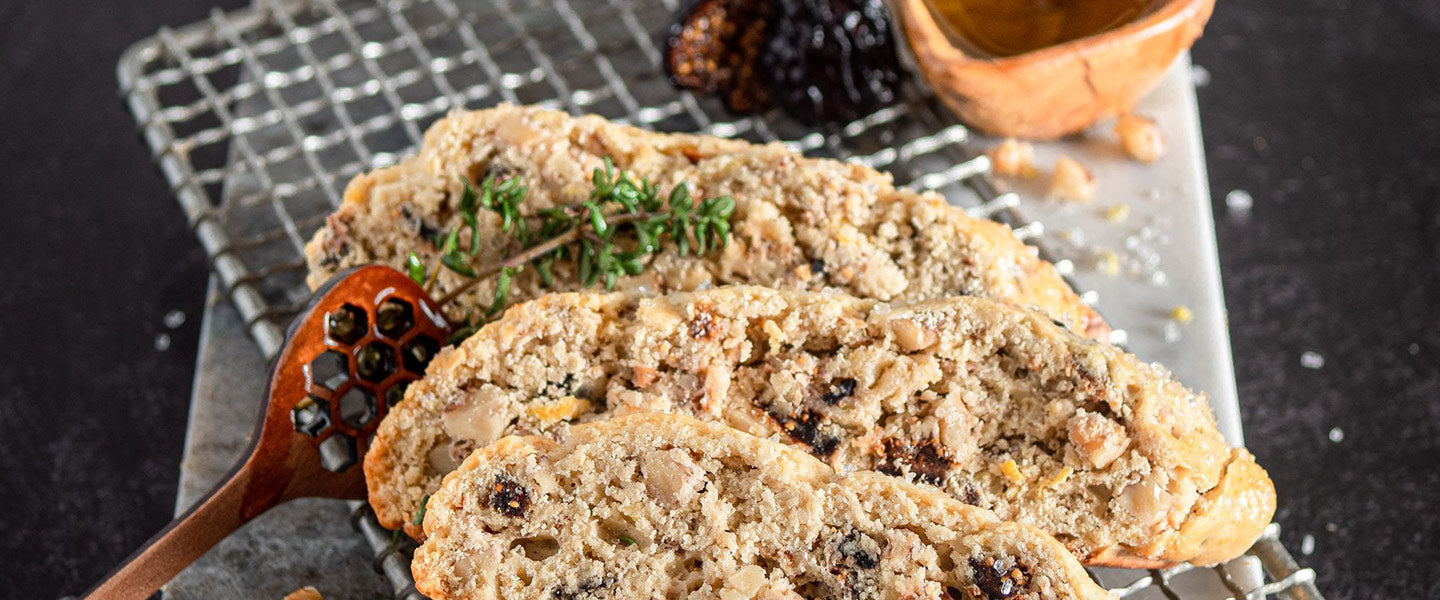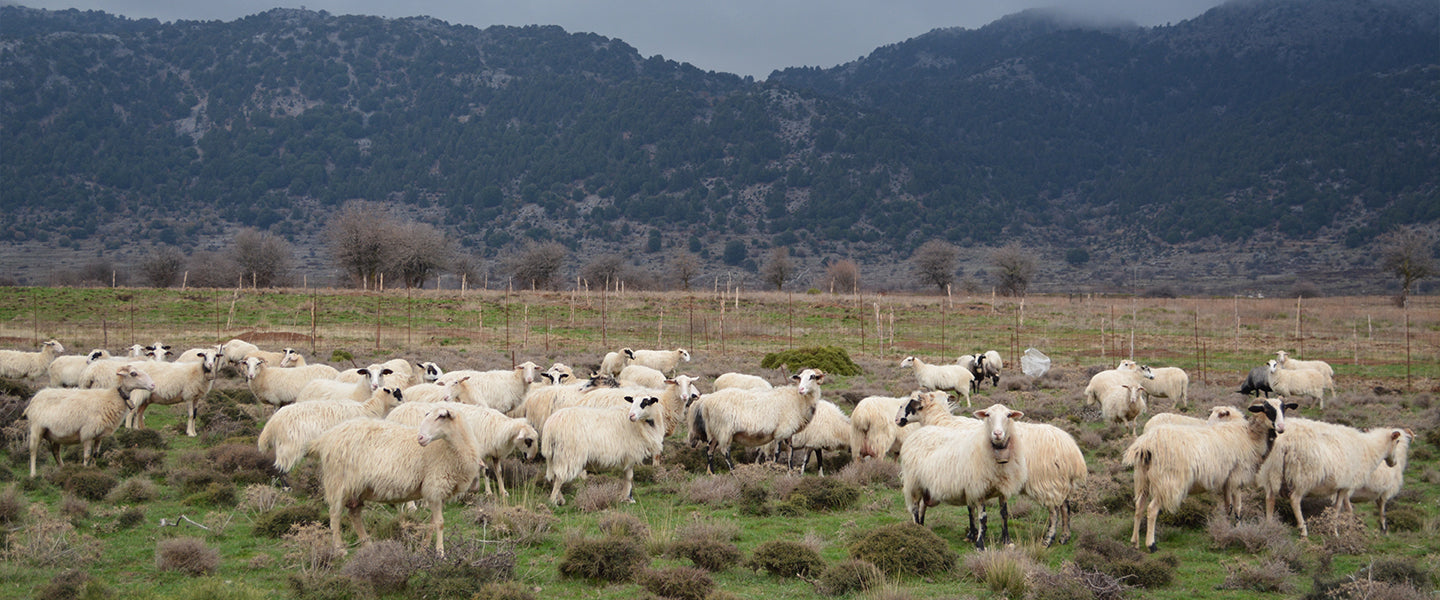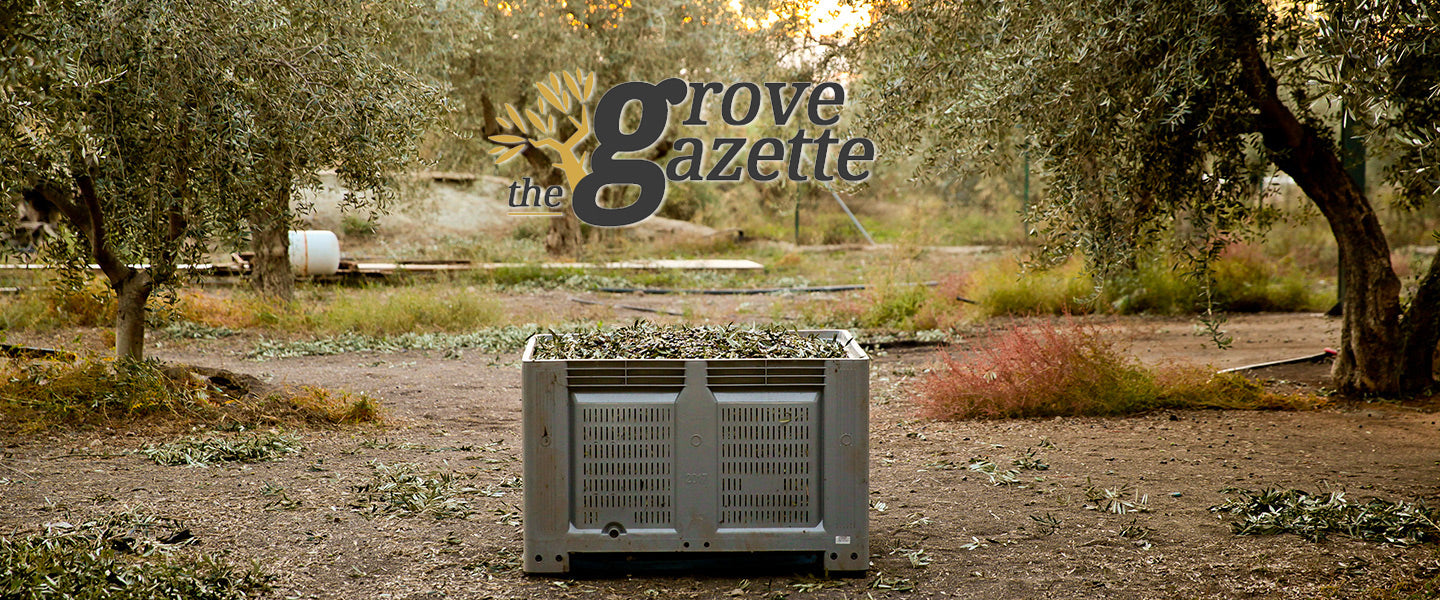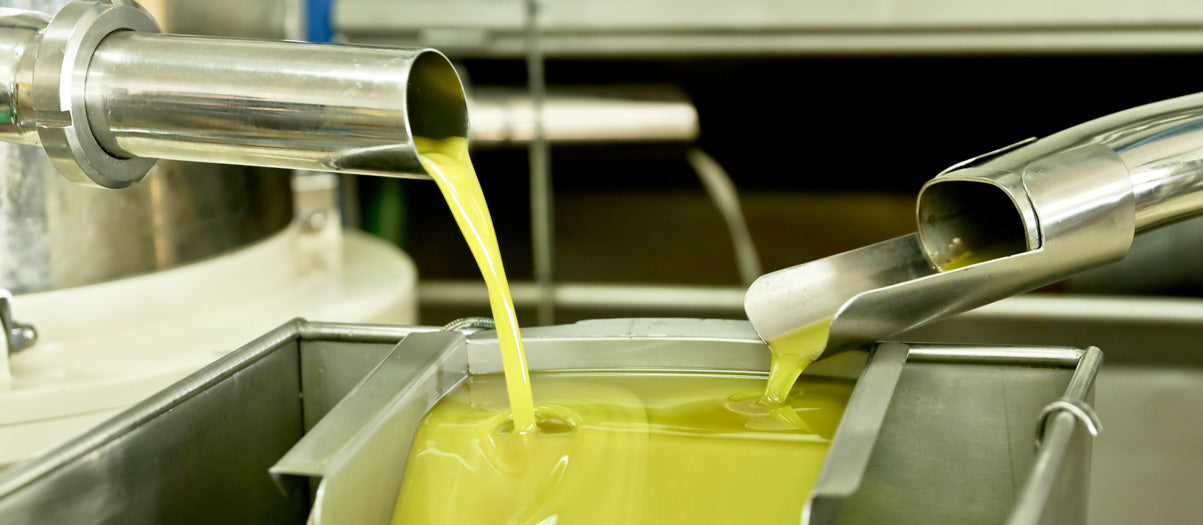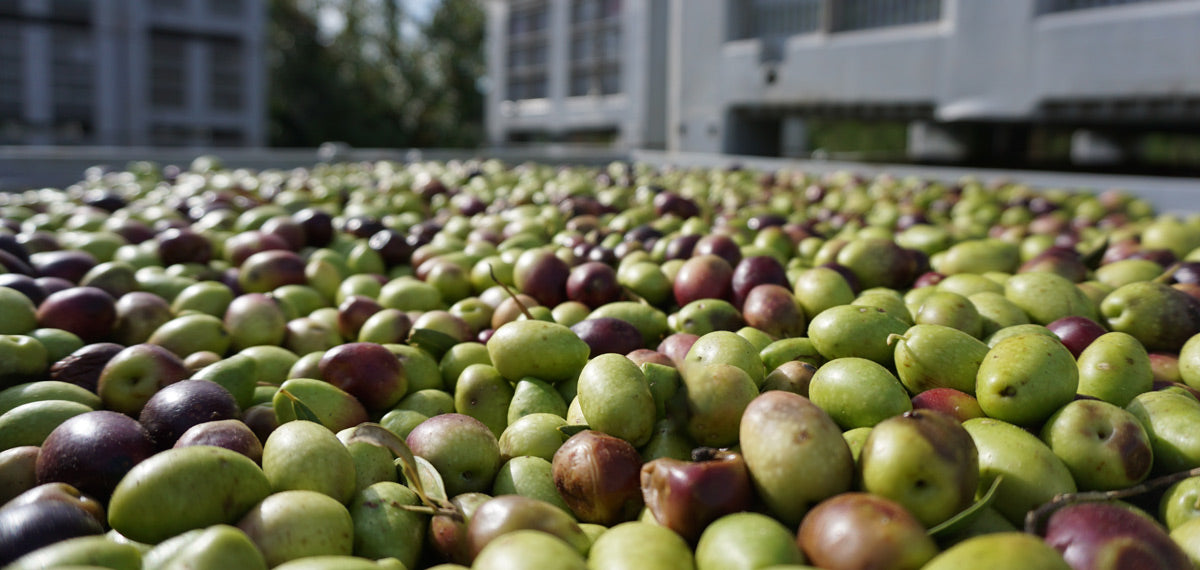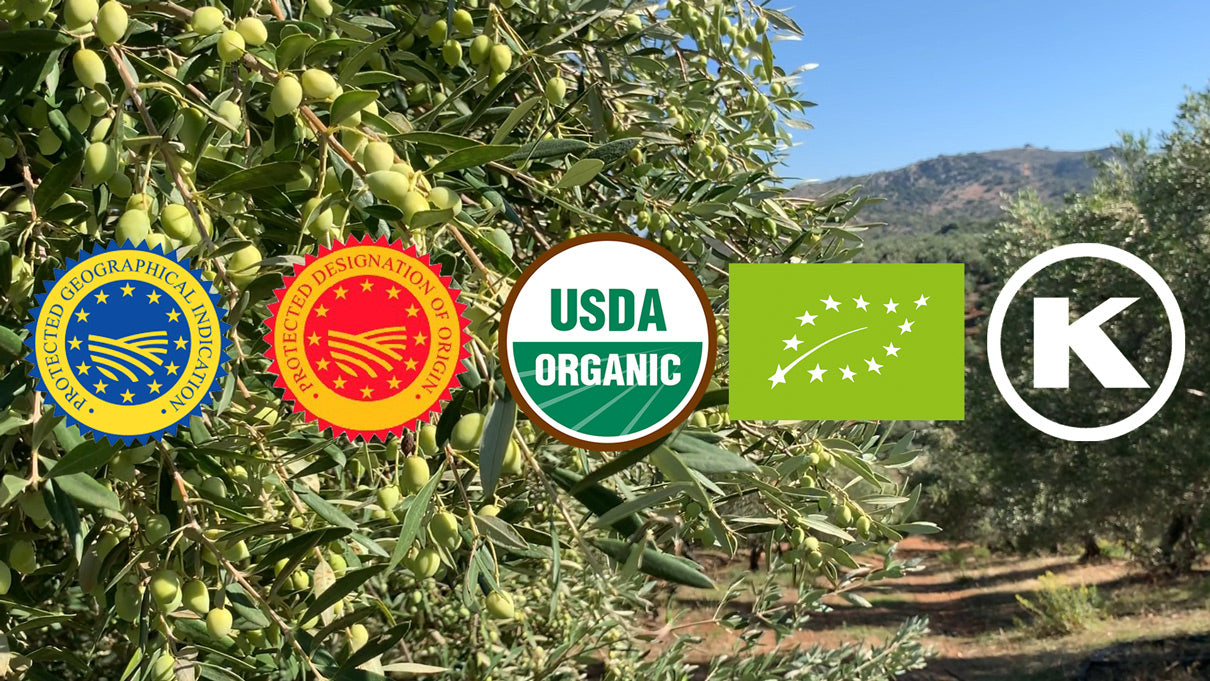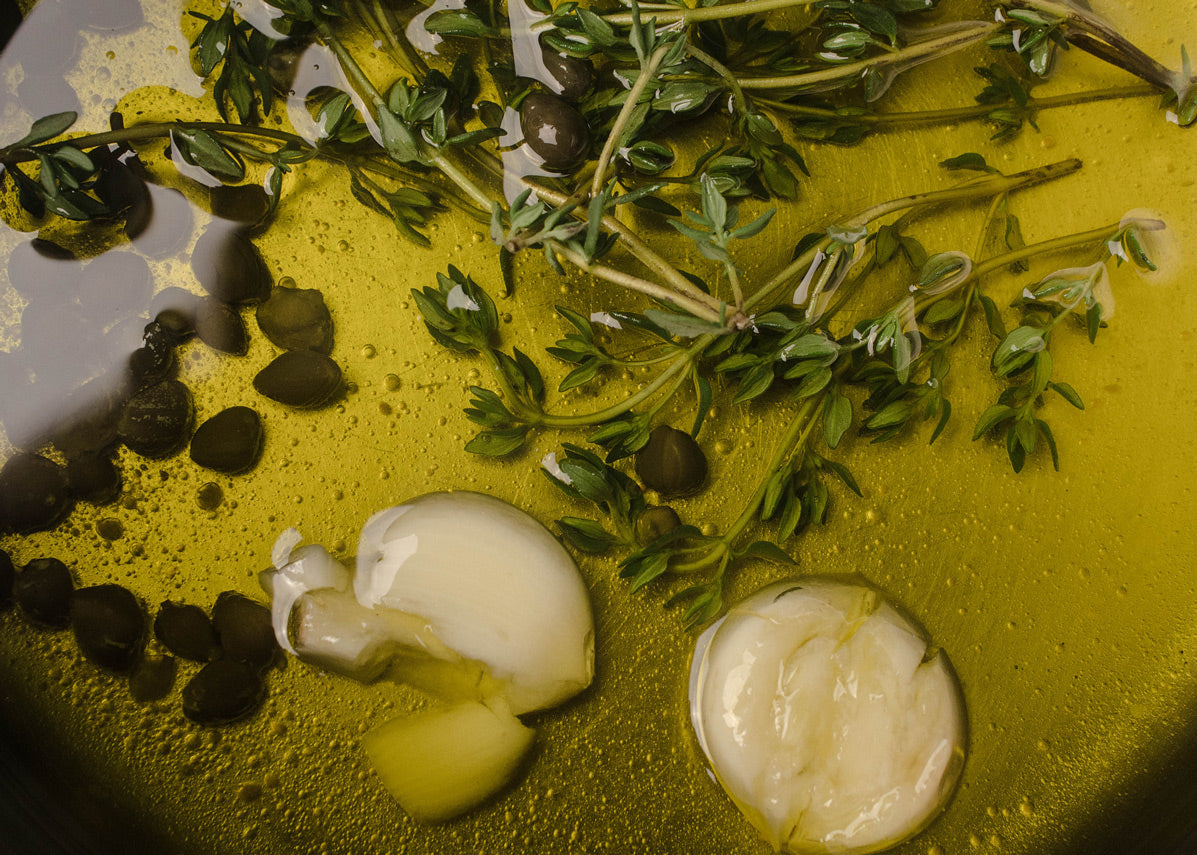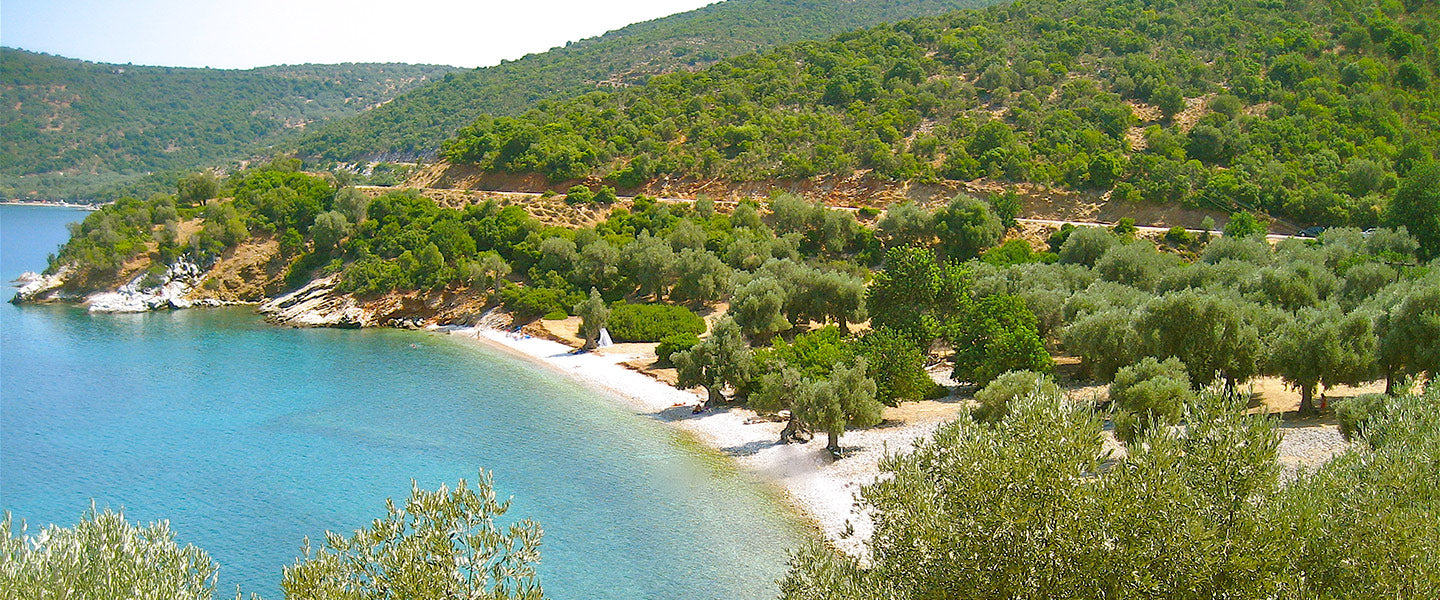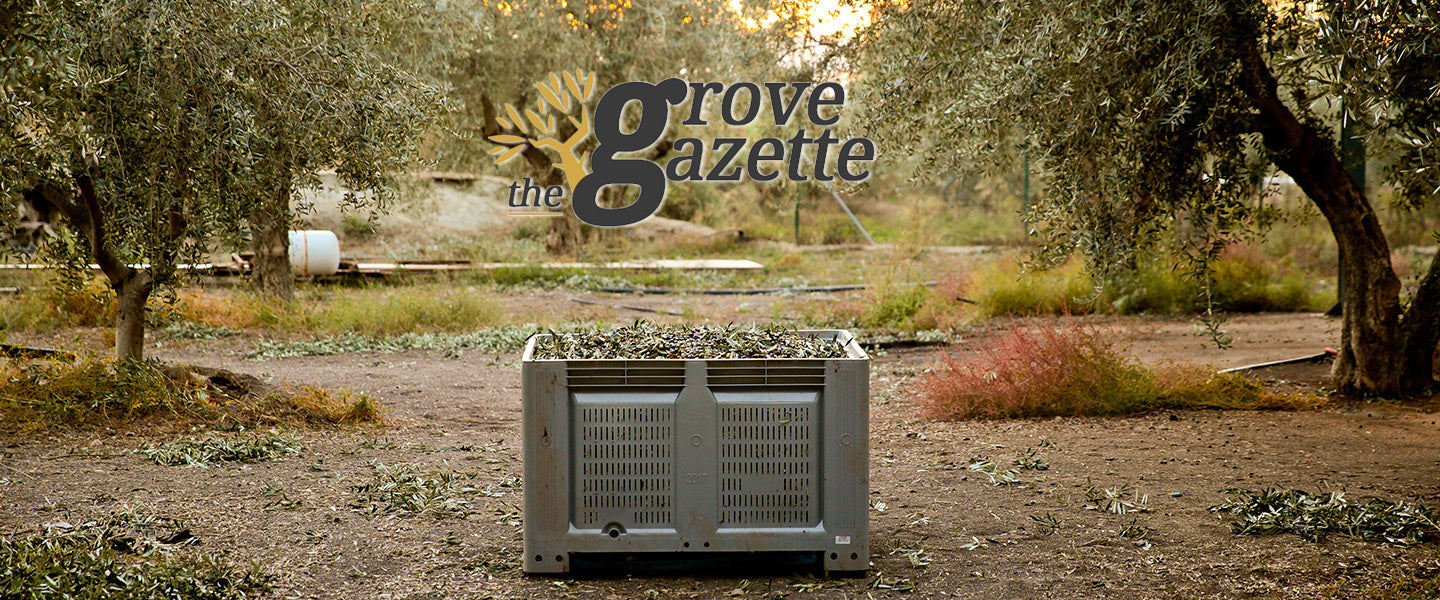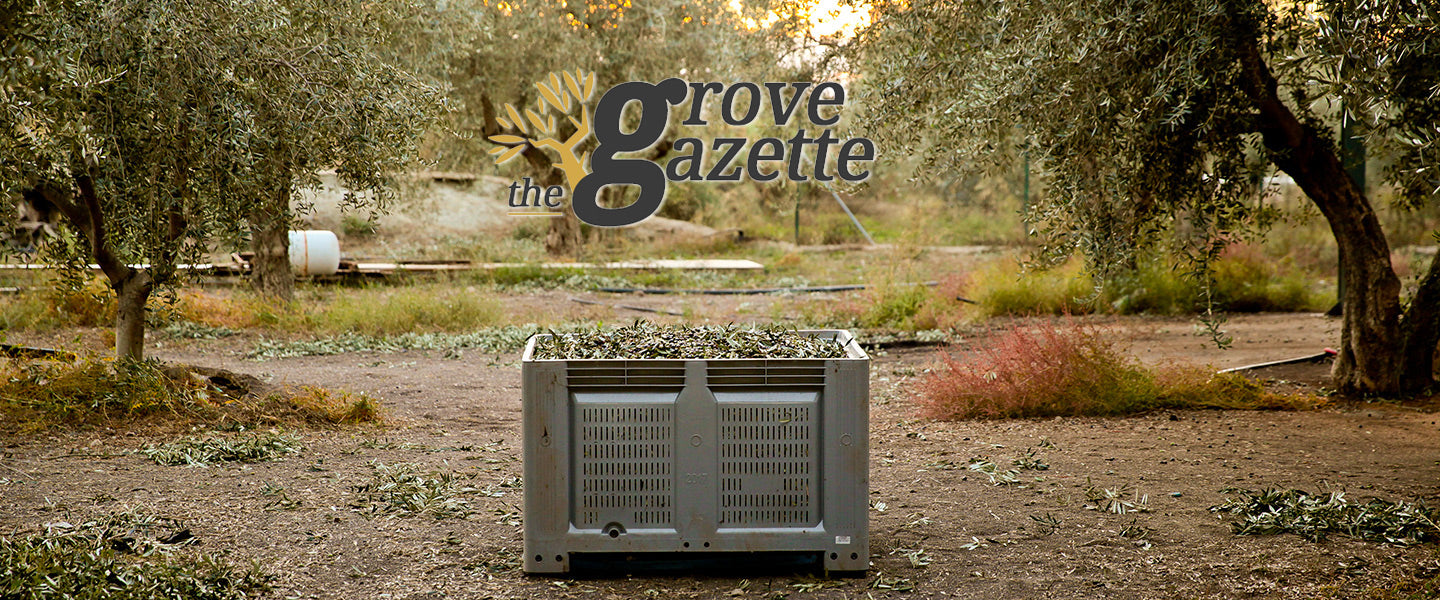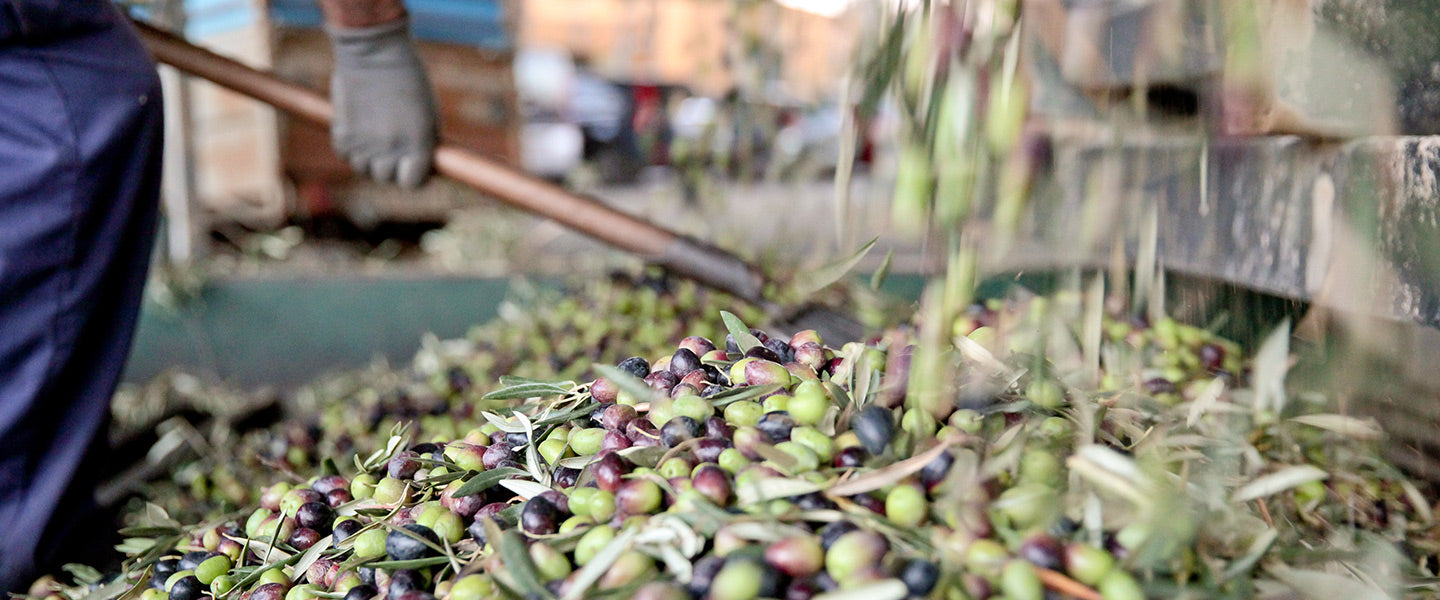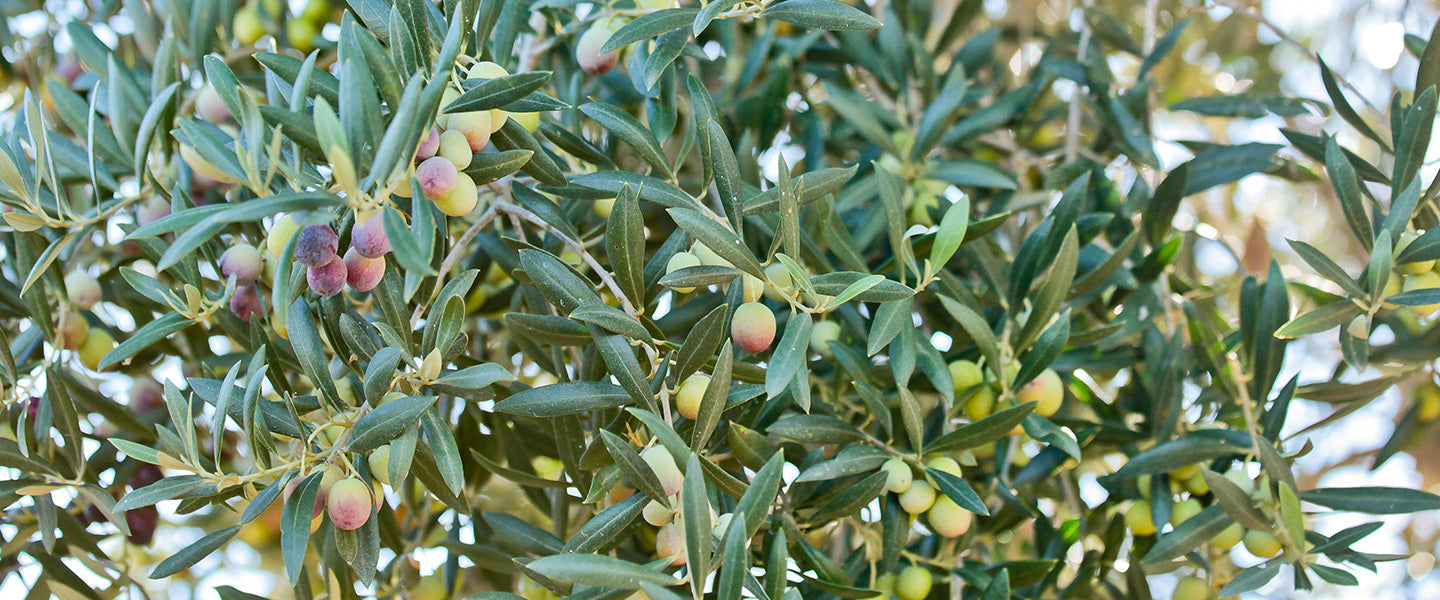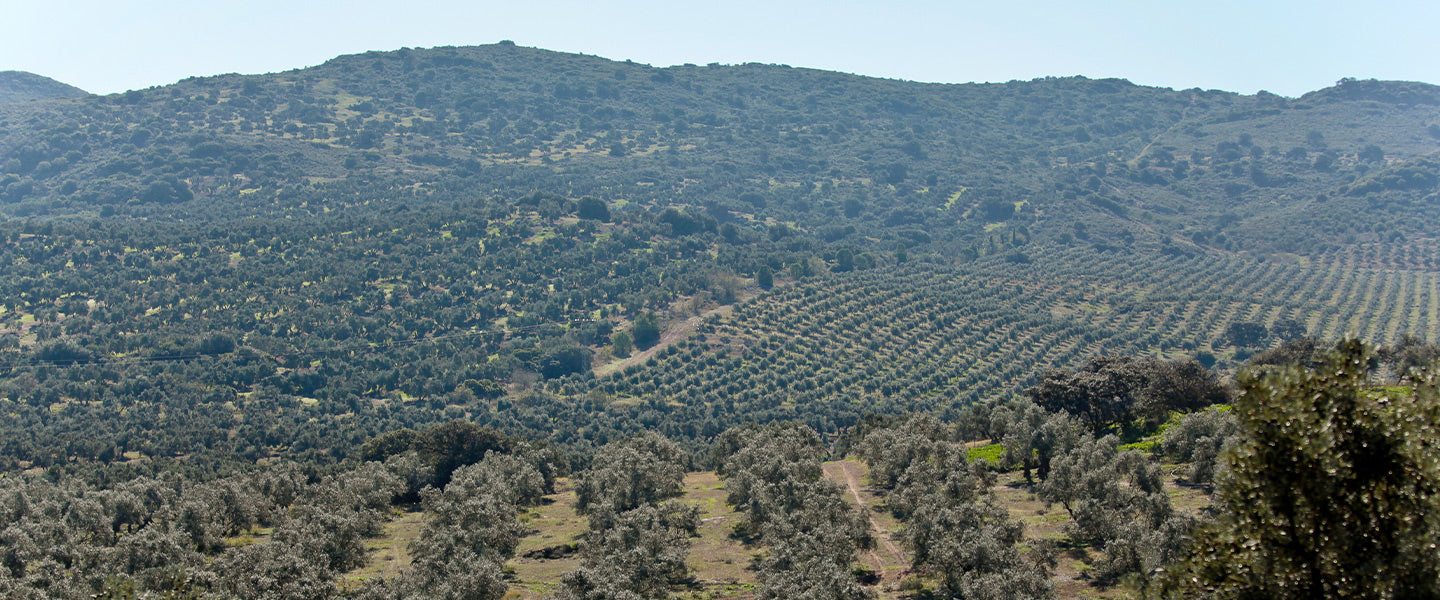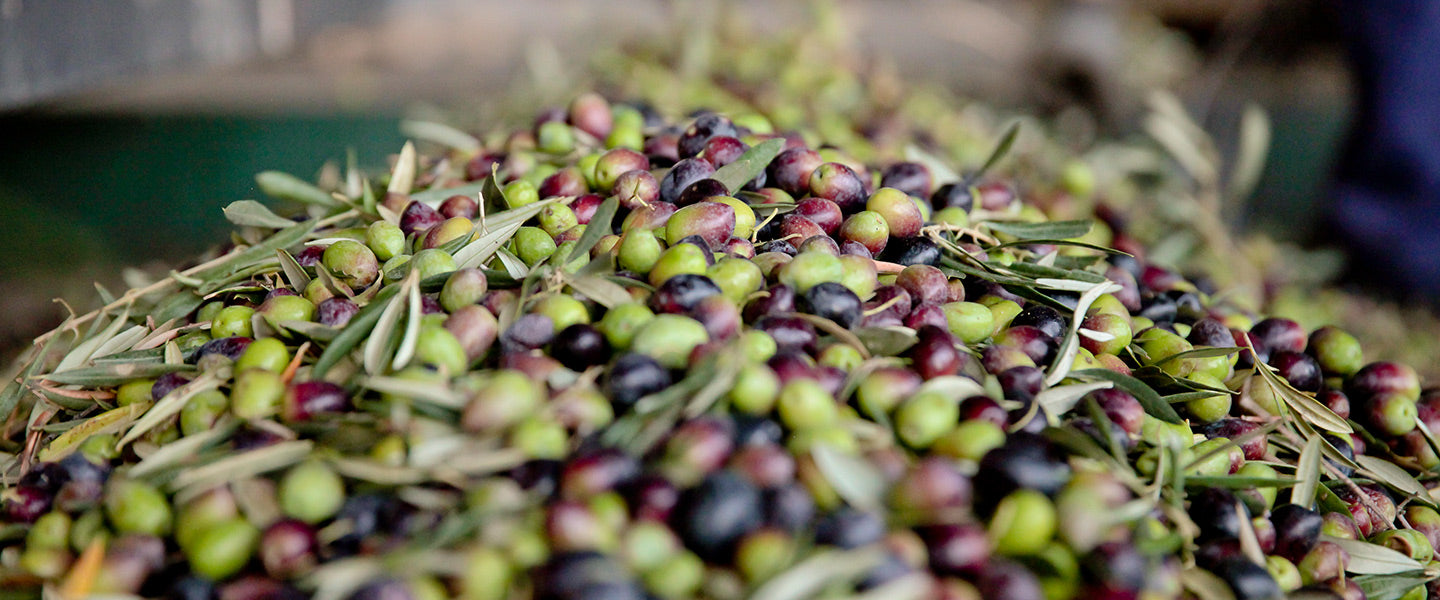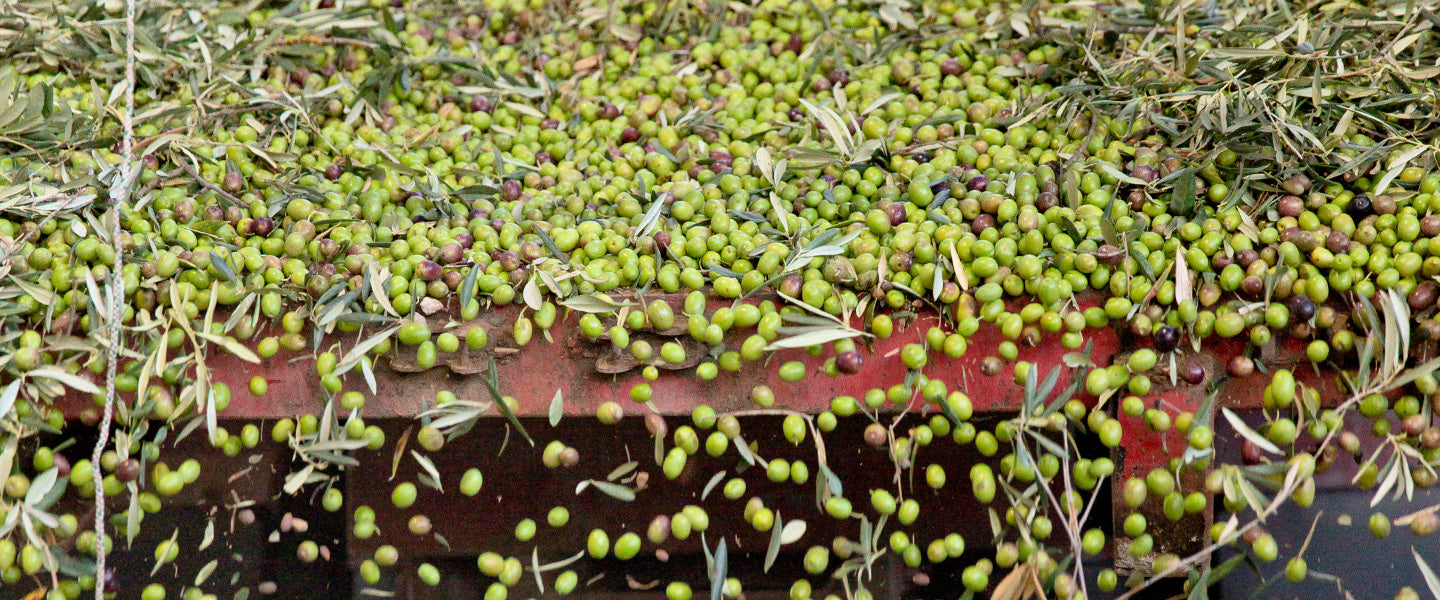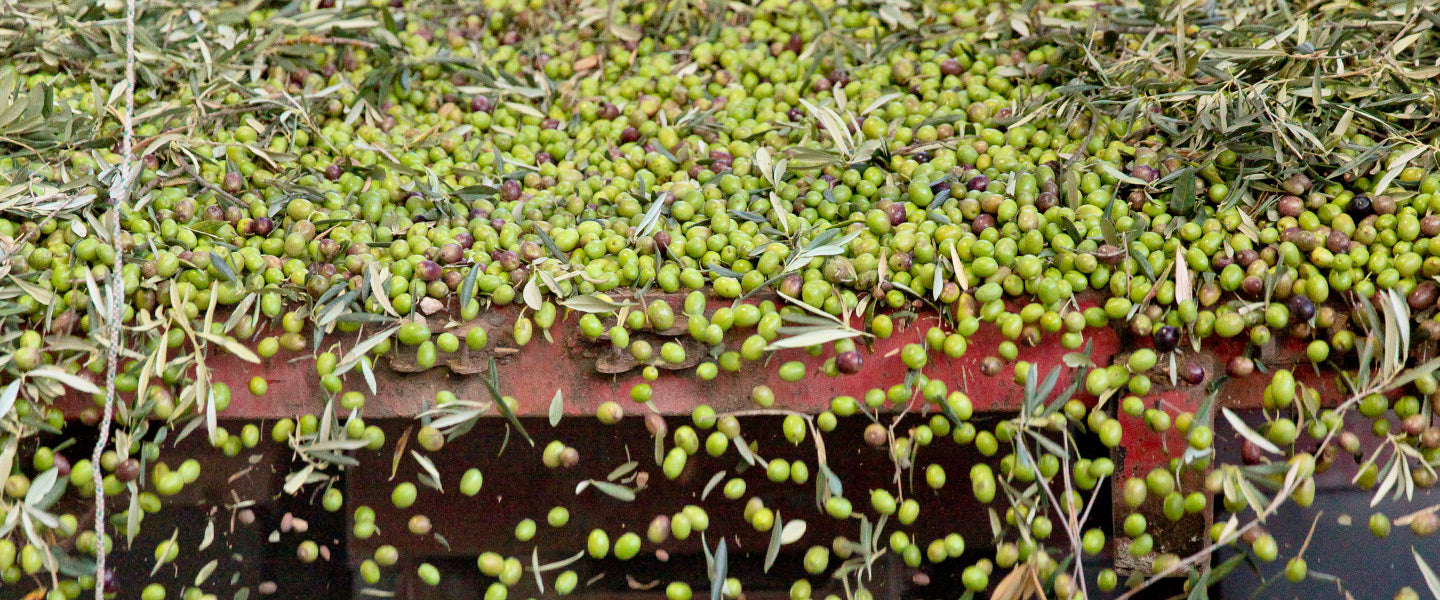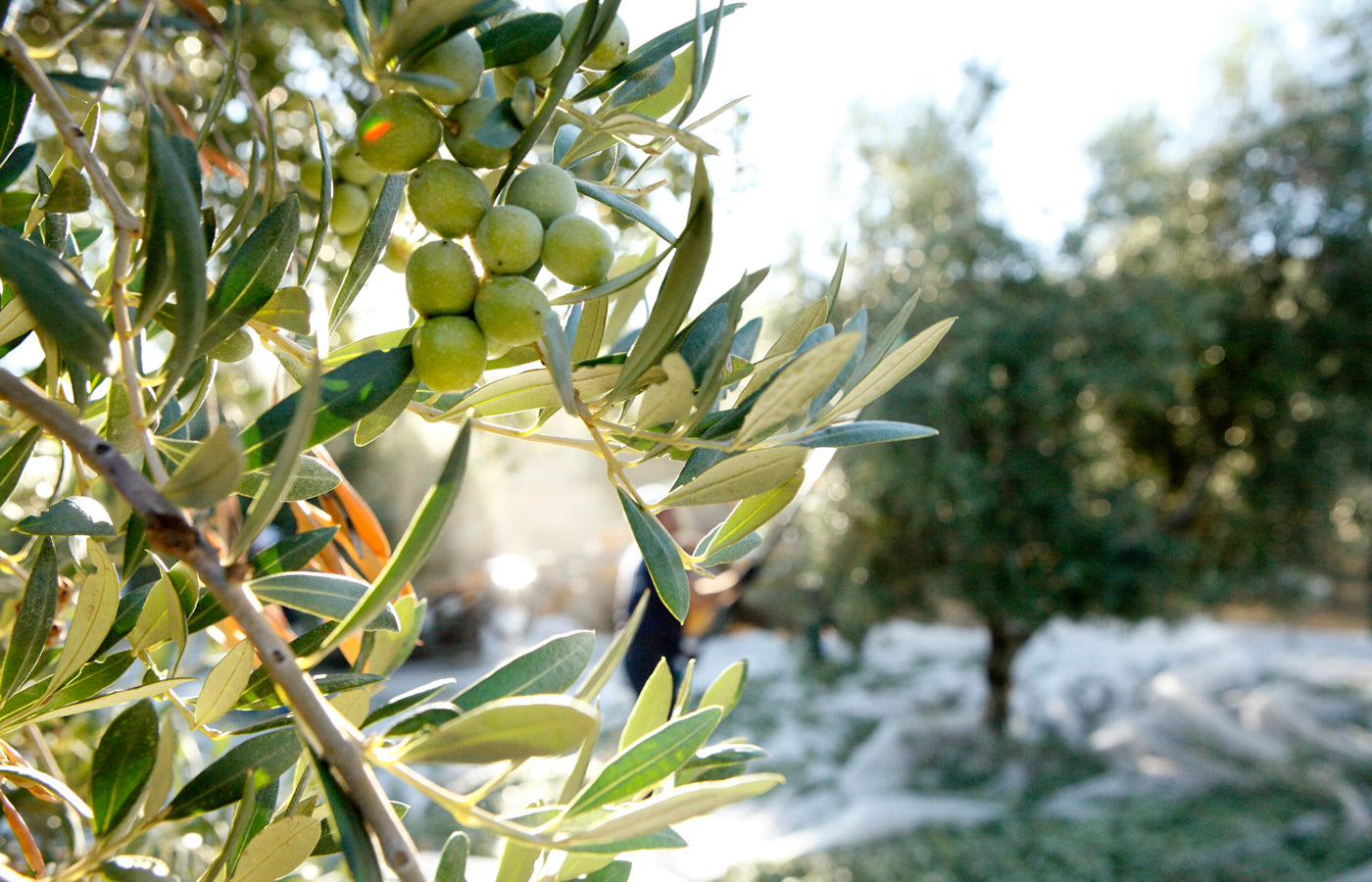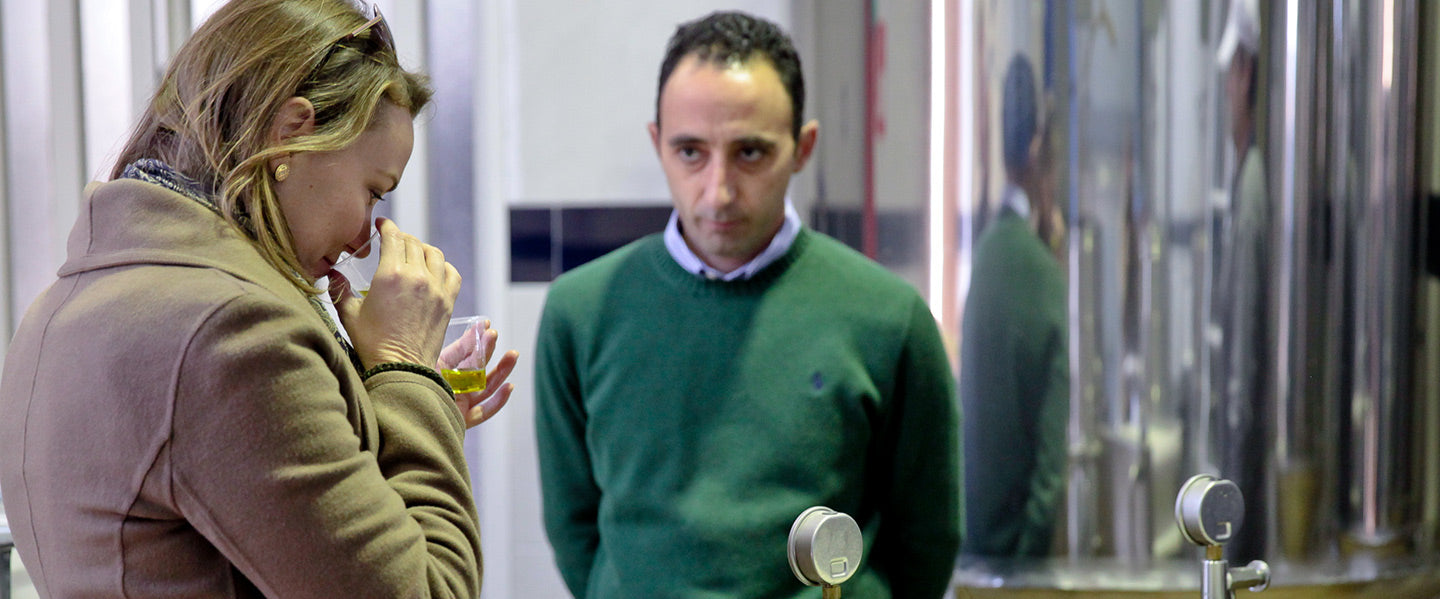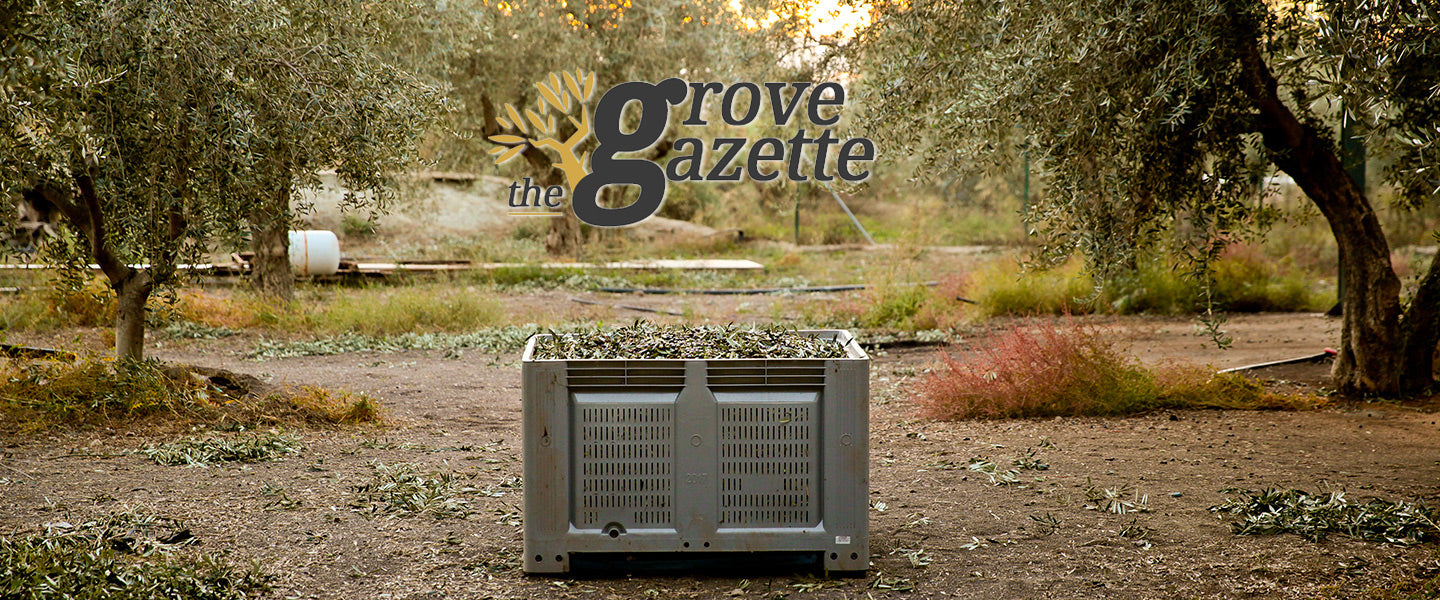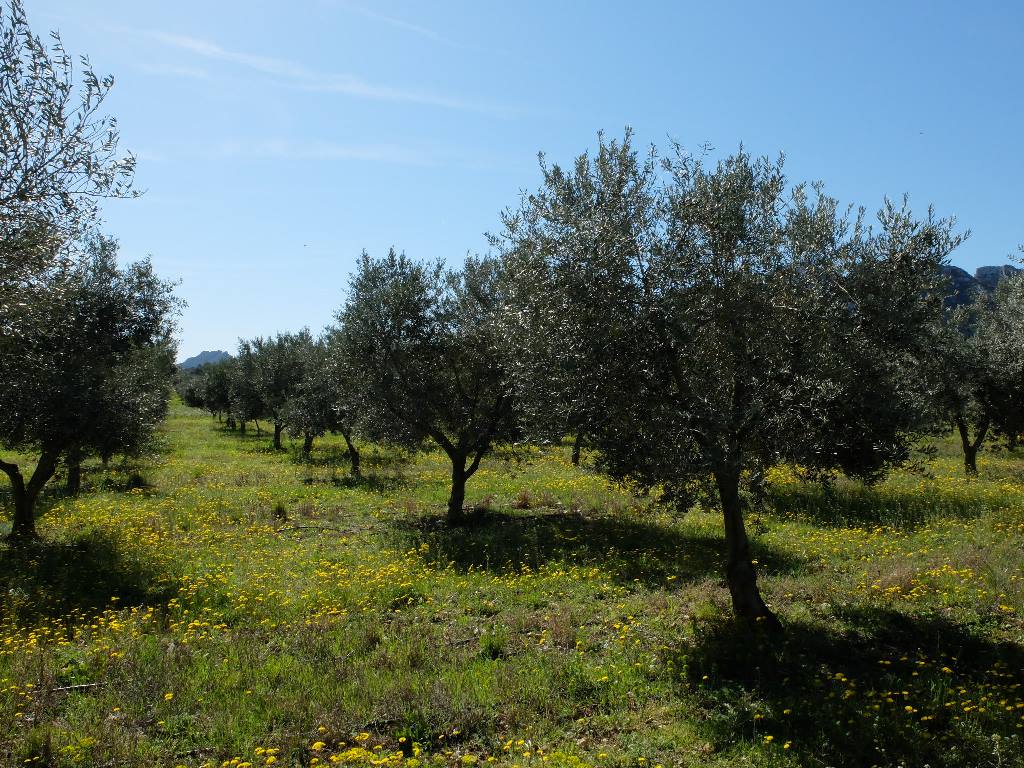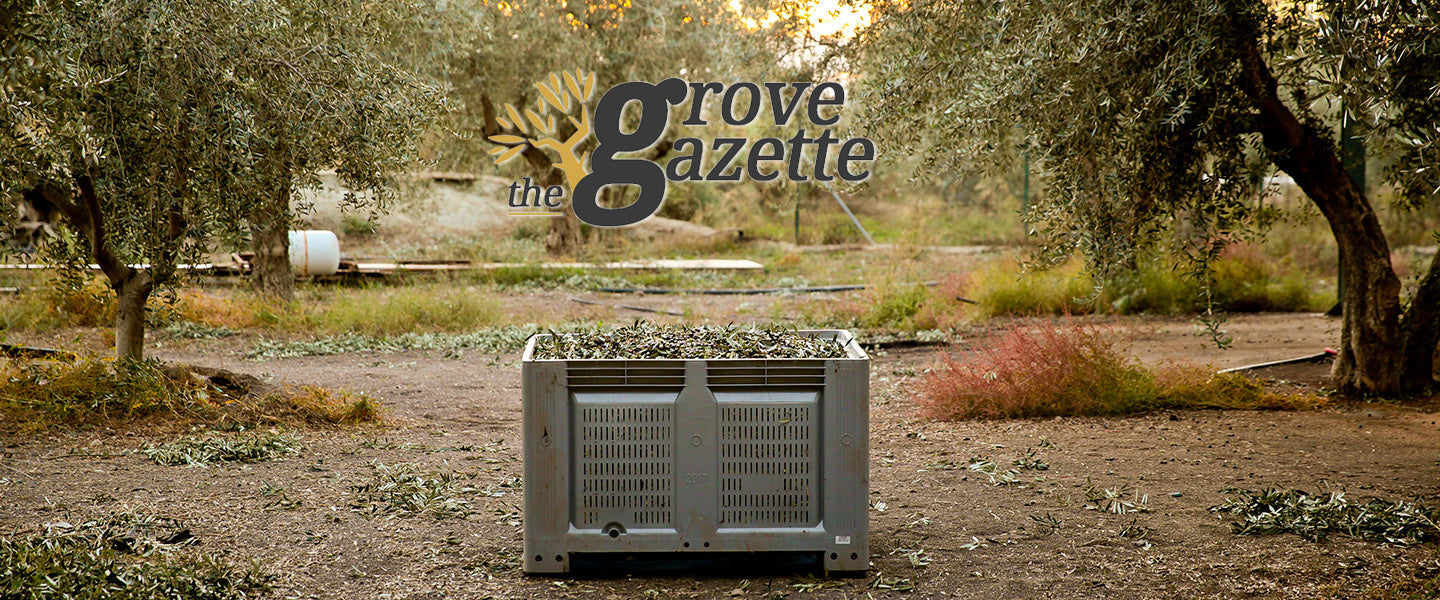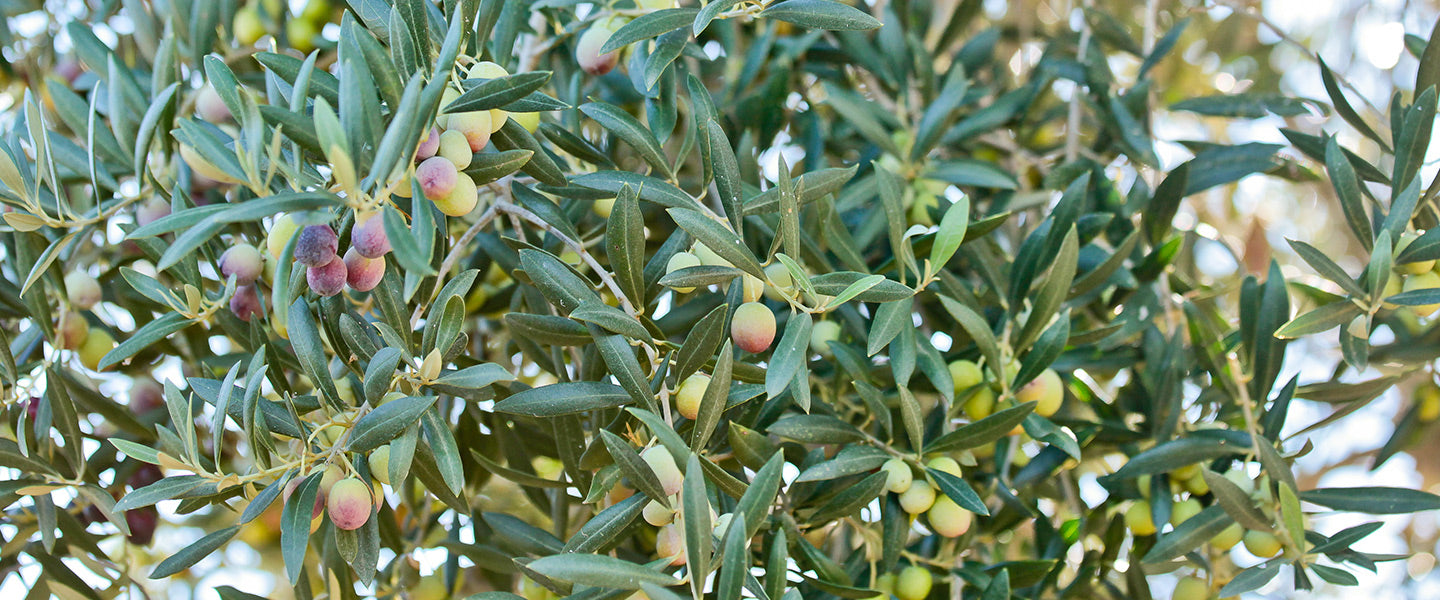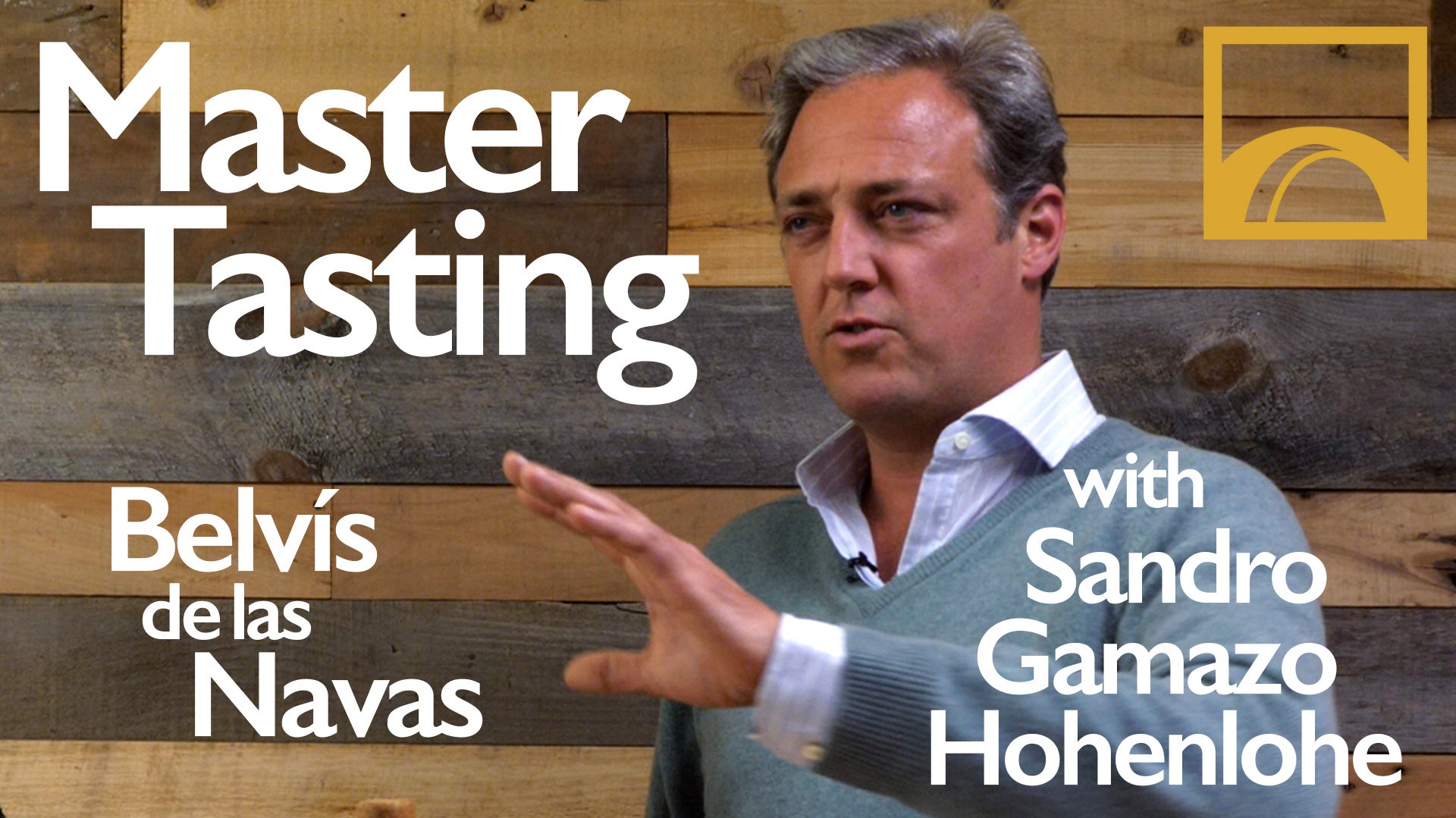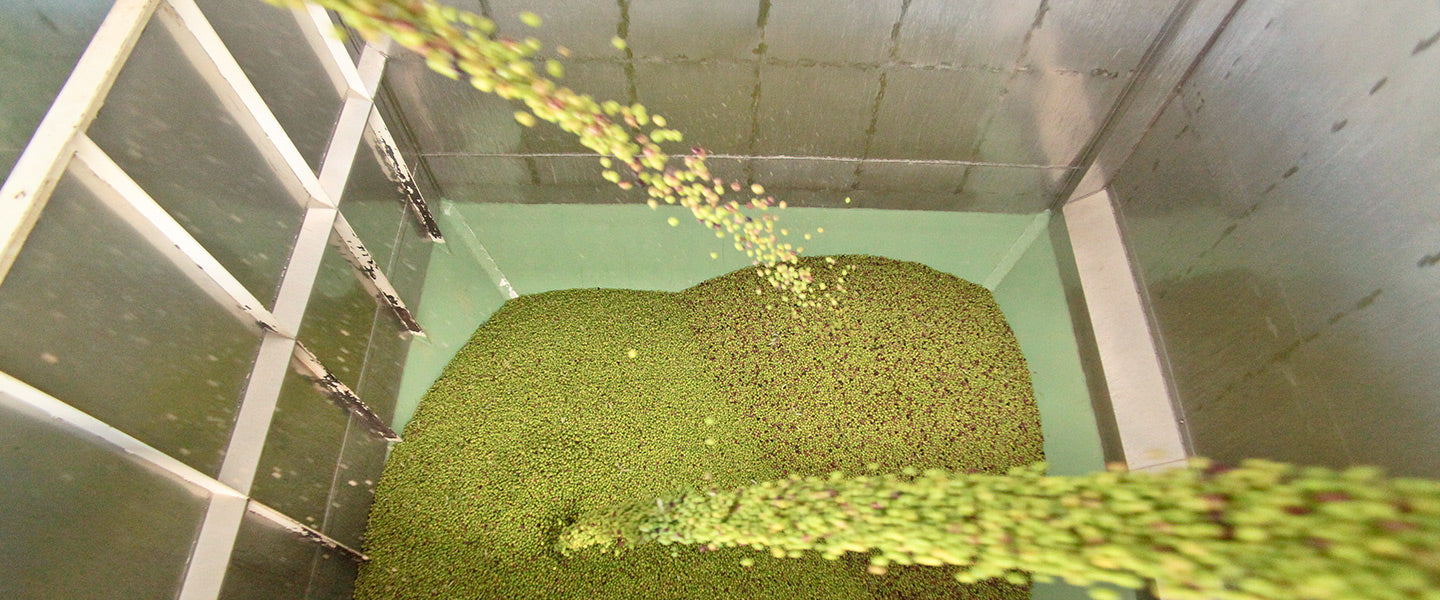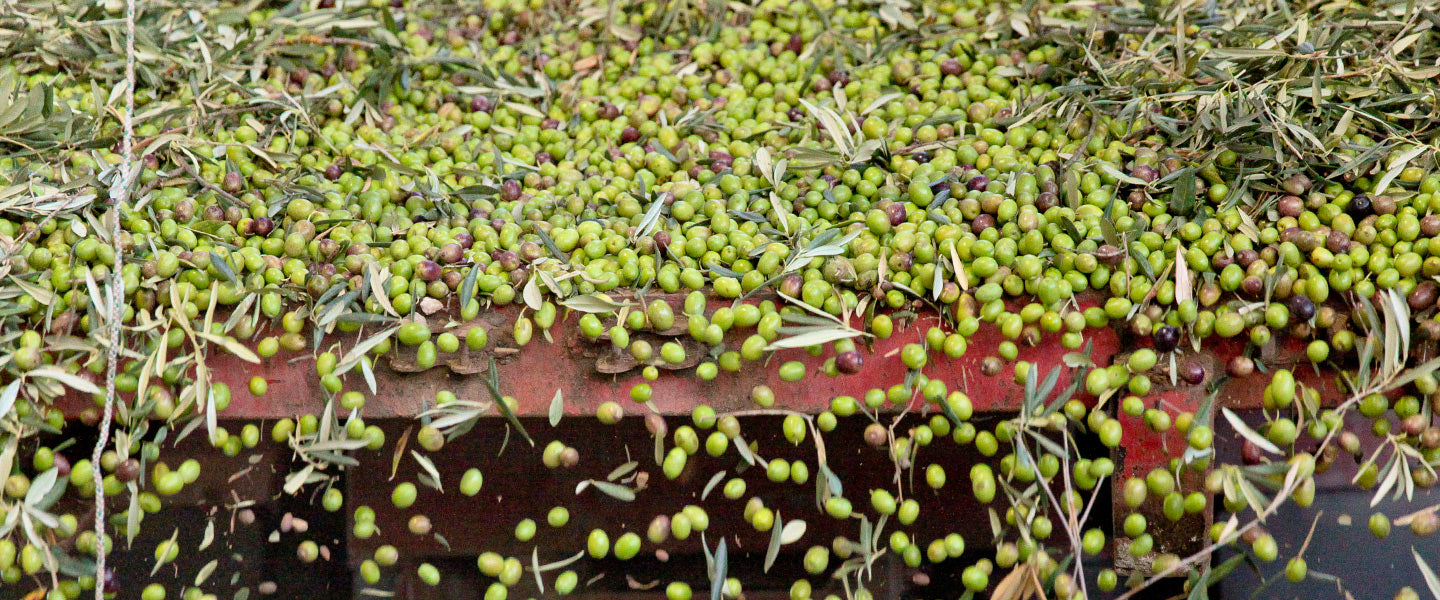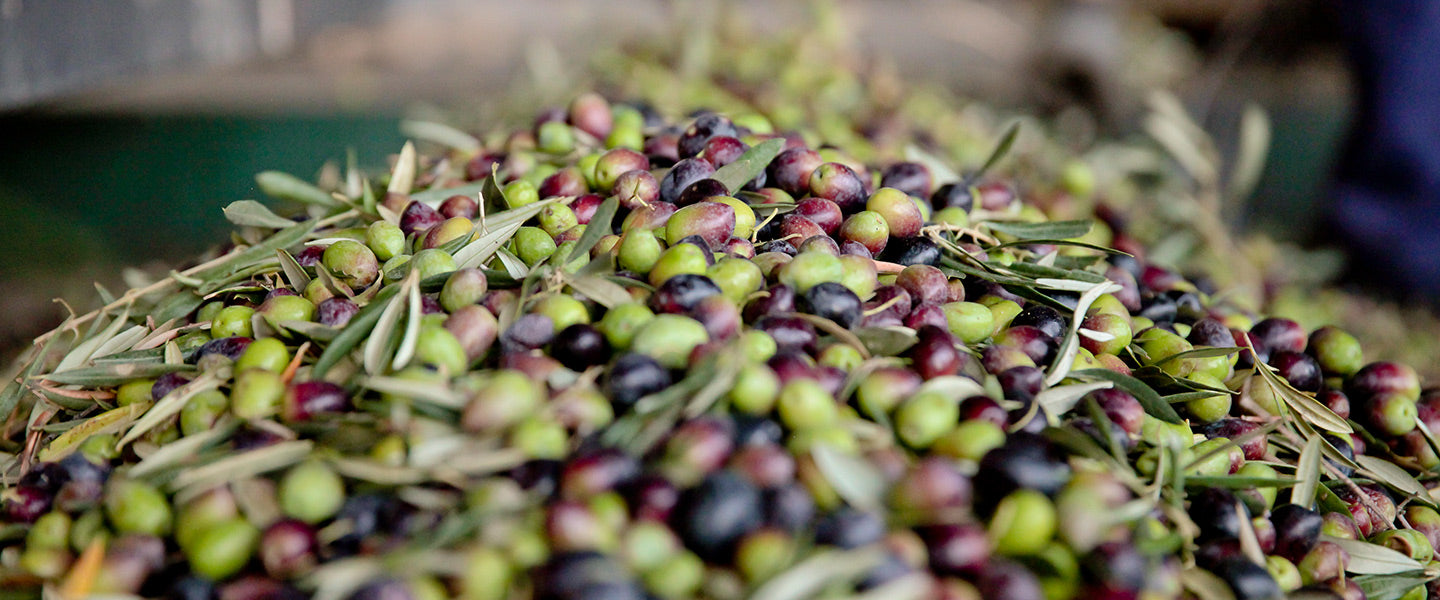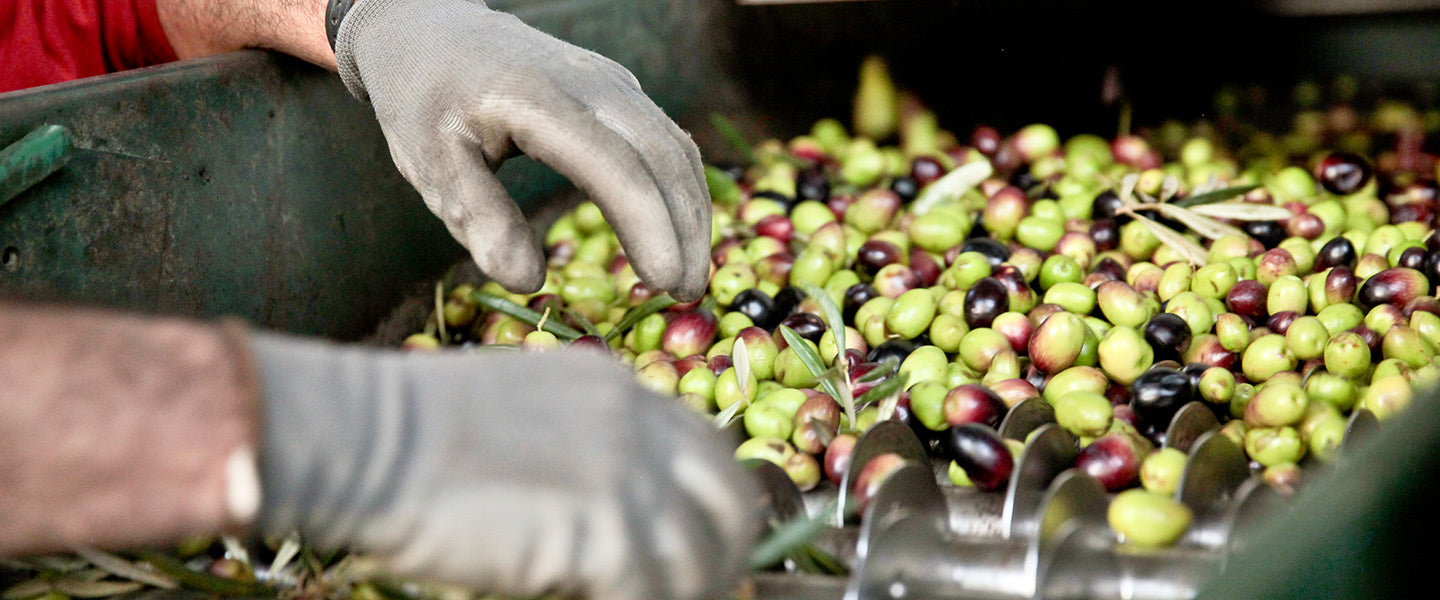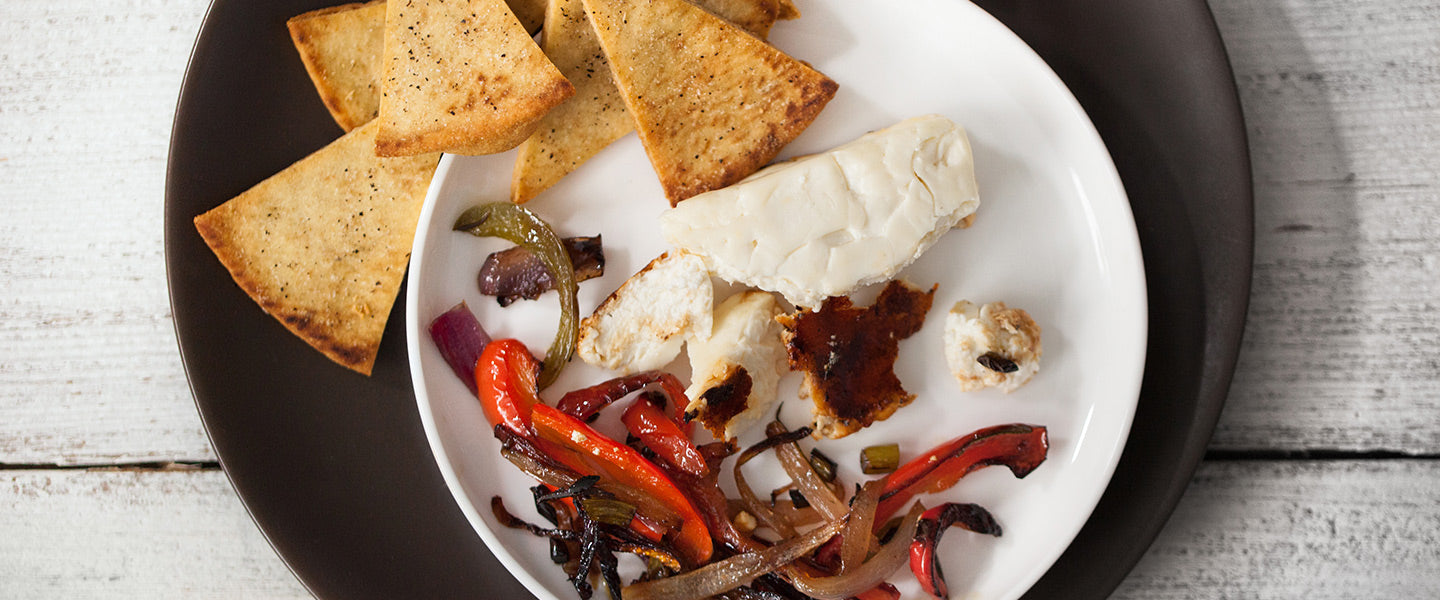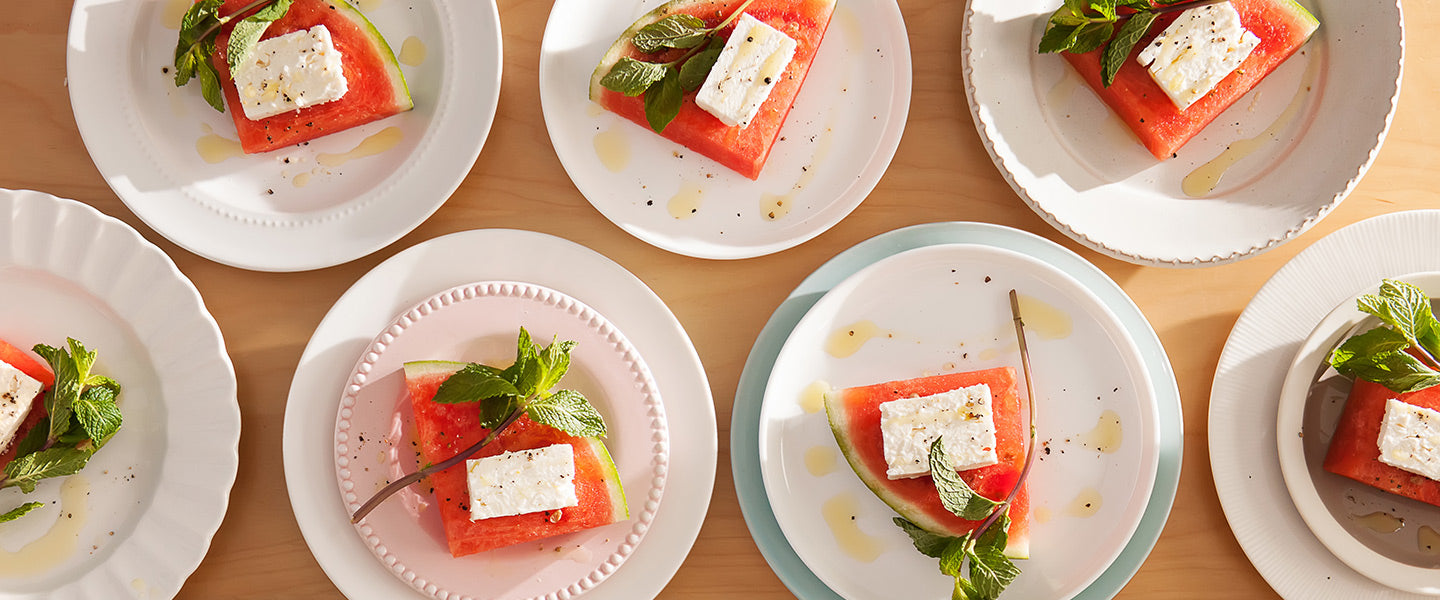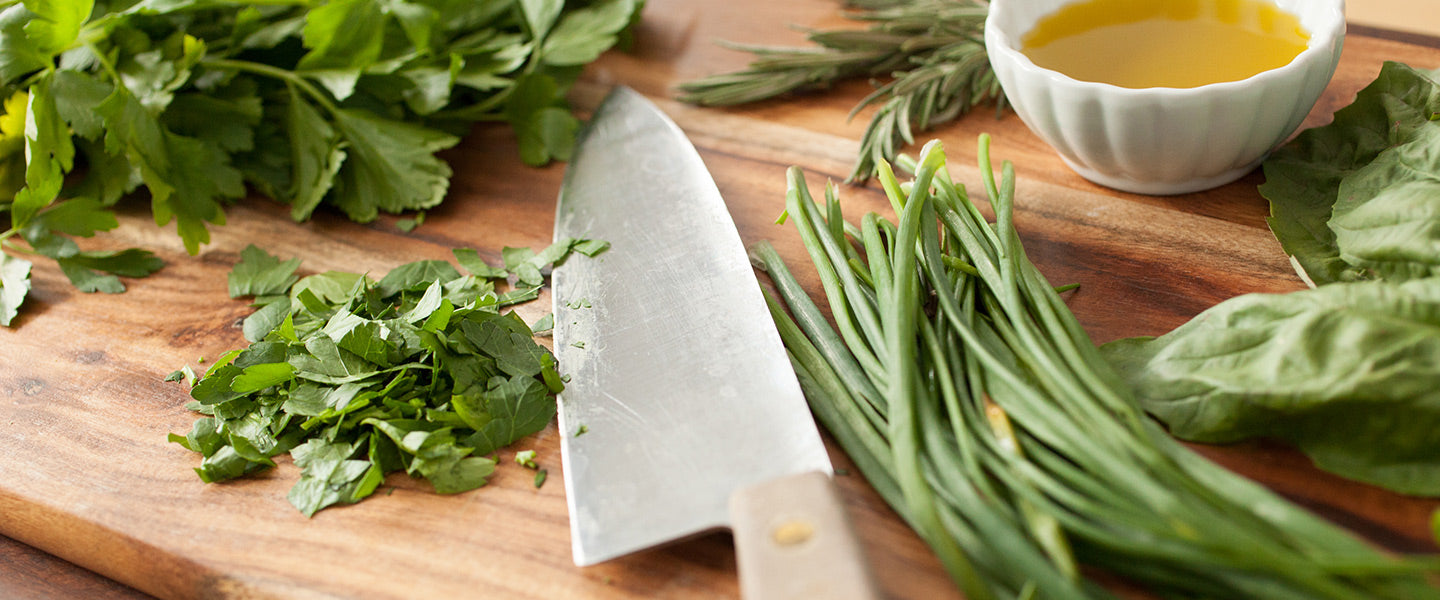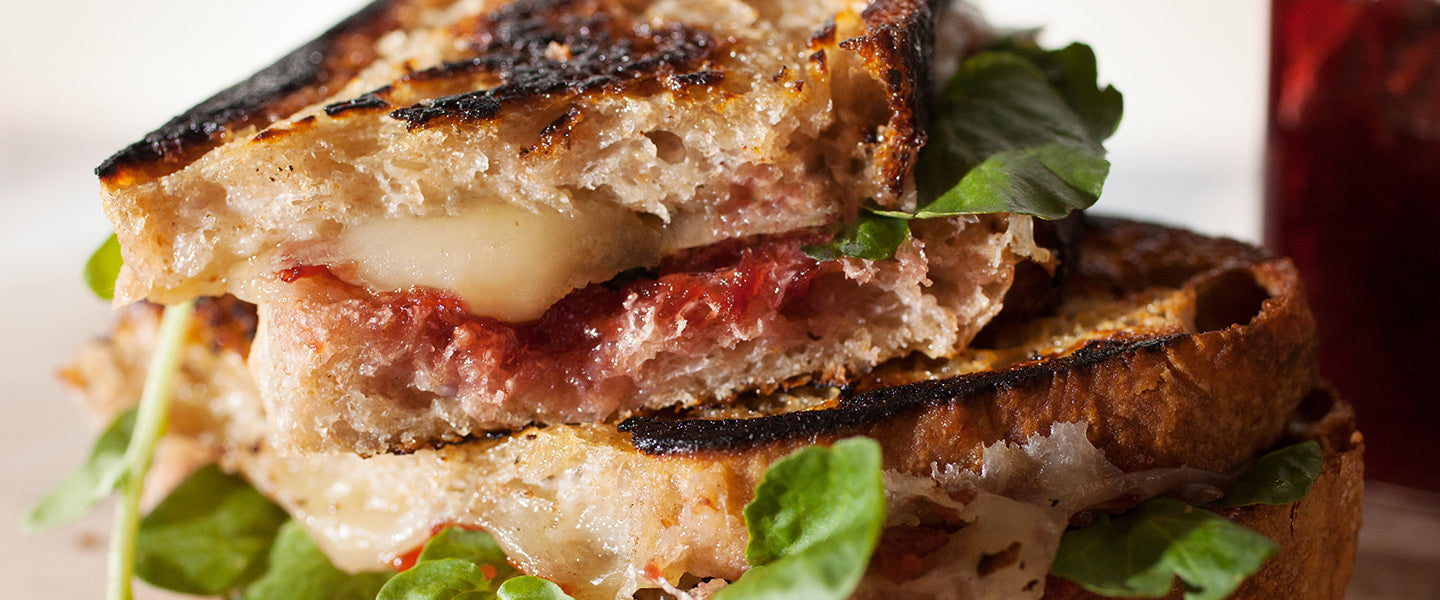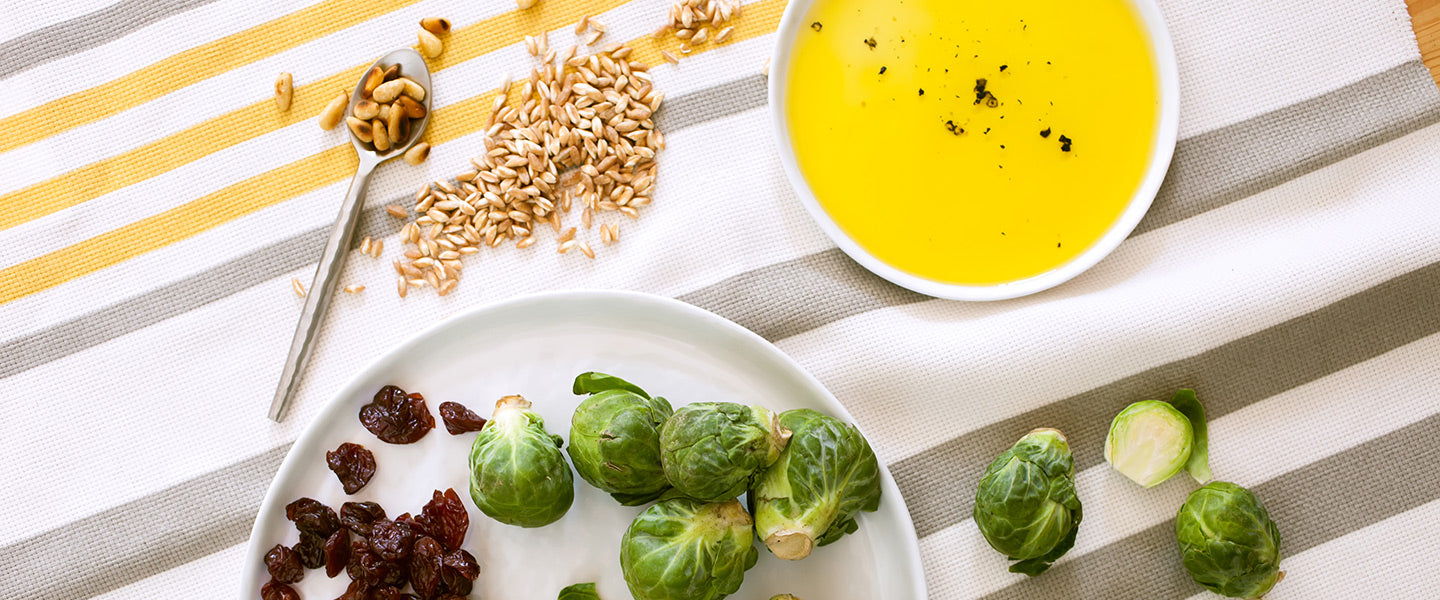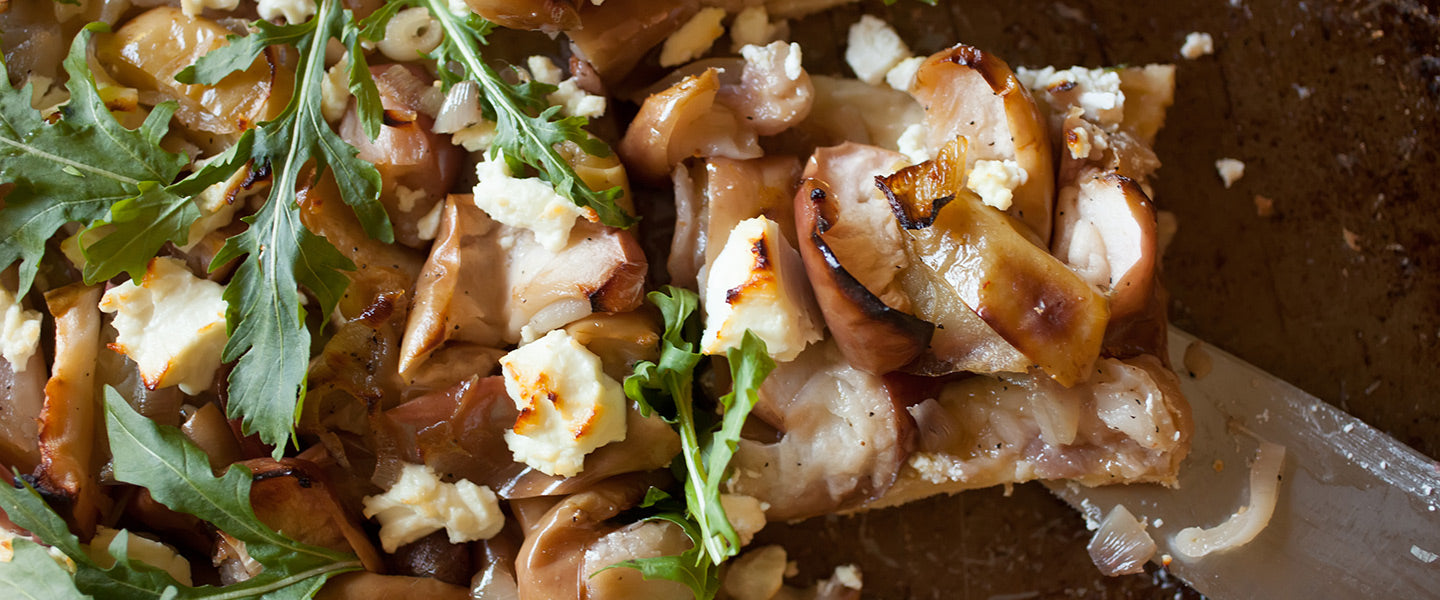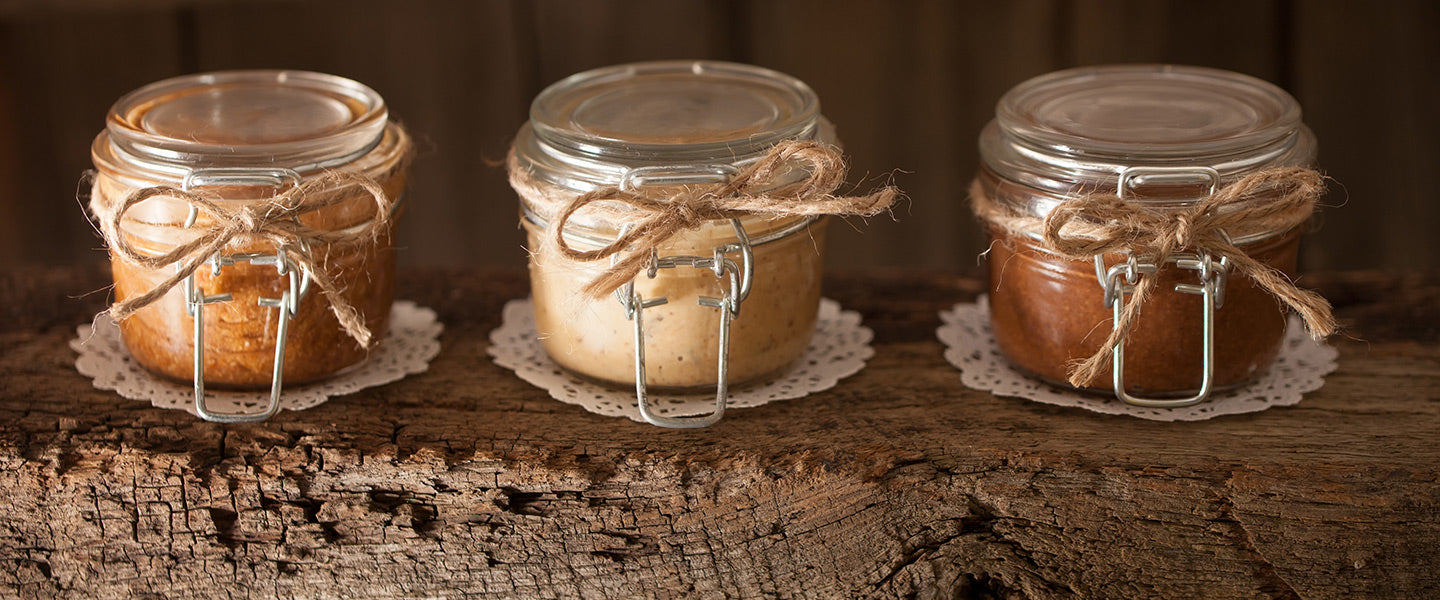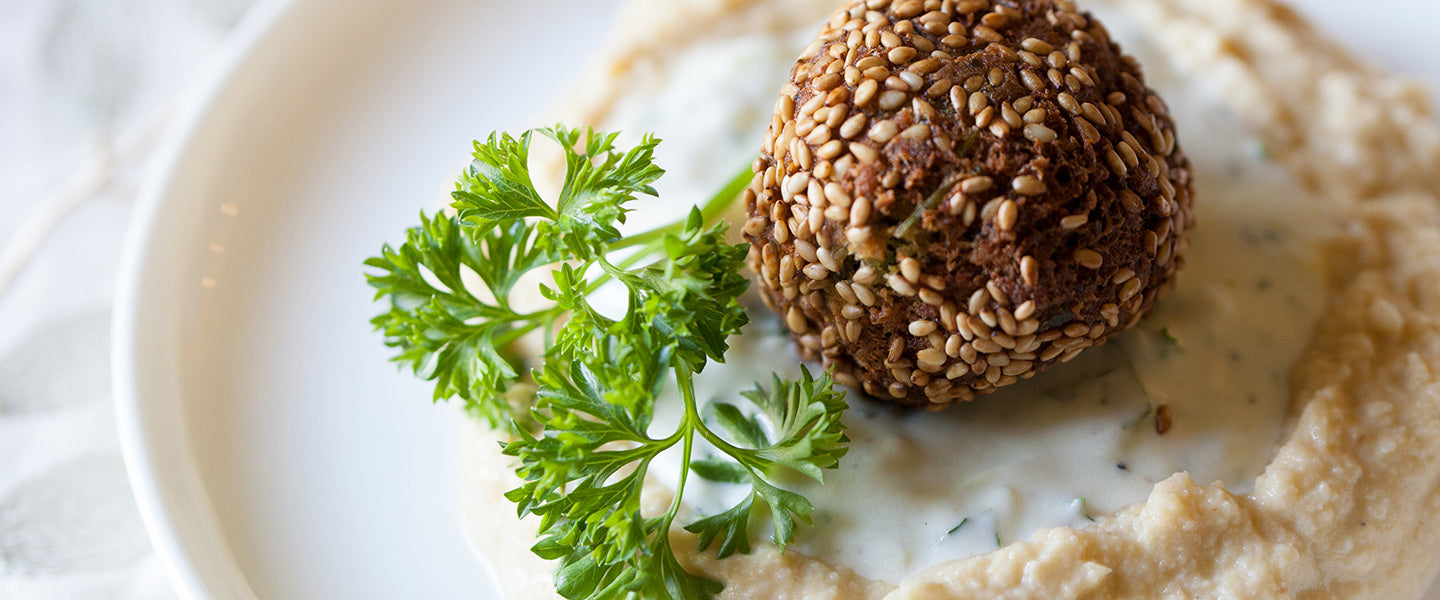- Home
- Our Journal
- Producers Producer Feature: Castillo de Canena
Producer Feature: Castillo de Canena
Posted by Olive Oil Lovers on
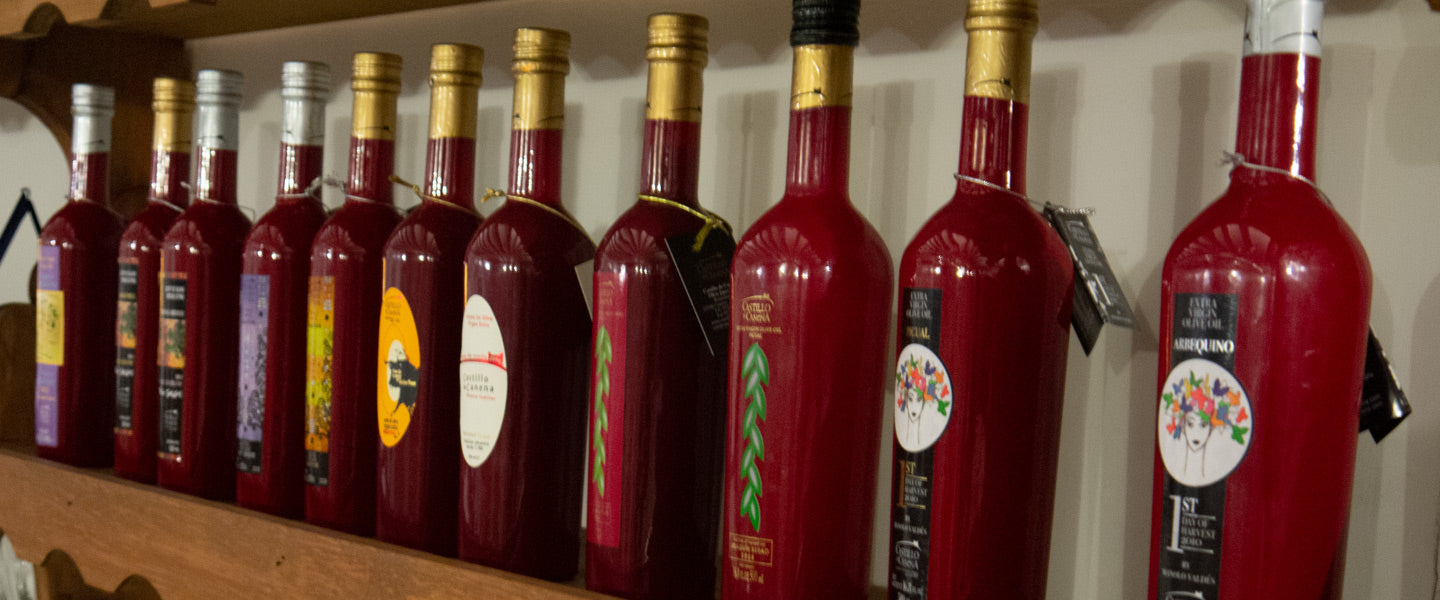

Perched at the peak of the small village of Canena in Northern Andalusia sits the castle of Castillo de Canena for which it gets its name. The drive up to the castle is a short but winding one through narrow village streets, lined by red-roofed homes on either side, and is the last stop on our harvest tour through Andalusia last November.
Upon our arrival after a long drive, we were warmly greeted by our hosts, Francisco Vañó, General Manager of Castillo de Canena, and the Director of Exportation, Ana Vargas. Settled into the library of the castle, nibbling on smoked salmon and sipping a crisp Spanish white wine, Francisco tells us the history of the castle itself. Upon hearing the word ‘castle’ one might envision a moat, guards and knights. This modest castle, however, is the home of the Vañó family, and with the warm and welcoming generosity of our hosts, the castle does indeed begin to feel very much like home.

Eagerly awaiting to try their new harvest oils, Francisco guides us through the castle down a flight of stairs to their impressive tasting room. Company news articles and awards adorn each wall, floor to ceiling, and sitting on the dark wooden bar is a bottle of each of their olive oils, fresh from the 2012 harvest and only a couple days old.
Dazzling our palates, we sample the First Day Harvest oils, the intensely fragrant result of the very first milling of the 2012 season’s olive crop, beginning with the smooth and mildly pungent Arbequina, finishing with the pungent, peppery Picual. Francisco explains that each year the label for this unique red bottle is designed by a different artist from Spain’s creative community, as we see displayed before us on a wooden rack above the bar. We then taste an oil that was years in the making for Francisco: their Smoked Arbequino olive oil, an extraordinarily unique oil, cold-smoked with Cedar and organic wood, tasting somewhat like apple-smoked bacon, we conclude.

Grabbing a couple bottles of oil, we head upstairs to the dining room, eager to pair the oils with our lunch. While initially skeptical about the Smoked Arbequino olive oil, we’re quickly converted as Ana suggests we drizzle some on a side of roasted potatoes, which does indeed add a whole new dimension of flavor. Eager to pair the New Harvest Picual with something, and to the brilliant suggestion of Francisco, we pour the oil on top of a delicious creamy pumpkin soup and are simply amazed by the deliciousness of the peppery compliment.
After fighting off our food coma with a strong cup of coffee, we venture outdoors to the Land Rover and head to the hills of their estate. Having received an abundance of precipitation in the days prior to our visit, we travel through rain-drenched groves, wet earth splashing the sides of the vehicle, all the while joking that the scene would make an excellent Land Rover commercial.
Driving through rolling hills of olive groves as far as they eye can see, one clearly sees why the province of Jaén in Andalusia is the largest production area of olive oil in the world. While producing mass quantities of olive oil, until quite recently, Spain was not exactly known for producing top quality olive oil. Francisco reminisces about the overripe, slightly musty oils of his youth, however today there are a growing handful of producers who are shifting their focus toward quality over quantity, Castillo de Canena being one of them.

Of the 3,200 hectares of olive groves on the estate of Castillo de Canena, only 5-7% is dedicated to the production of the premium extra virgin olive oil required for the Castillo de Canena brand. As we listen to Francisco, his connection to the land and its preservation becomes clear. The Estate is surrounded by the Segura, Cathurla and Majina mountains and irrigated by the Guadiana Menor River. Francisco continually speaks of his goal in enhancing the biodiversity of the estate and tells of his initiative to plant eighteen different species of trees on the mountains of the estate, as well as continue their effort to decrease their CO2 footprint by using the leftover mulch from the olive crushing for fuel.
The company is also aiming for biodynamic certification of twelve hectares of their estate in 2013, an effort which requires ecosystem preservation, soil husbandry, livestock integration, and prohibition of genetically engineered organisms. This was evident by the sights of bee yards and flocks of sheep kept on the estate.

Now racing against the sunset, we quickly travel up the mountain to observe a small crew of workers, busily harvesting a group of olive trees. We watch as the tree vibrator moves from tree to tree, gently shaking the trunk of each tree while workers use long poles to assist the olives in dropping to the net underneath. These olives will be taken immediately to the mill, to where we are headed next, as timely crushing is an essential component of producing superior quality oil.
Castillo de Canena takes pride in their production techniques, using an entirely enclosed, cold continuous cycle system. Walking into the mill we’re immediately enveloped by the welcoming aromas of freshly crushed olive oil – an overpowering herbaceous smell of which one never tires. This is a moment of a miller’s pride and joy, tasting the oil as it pours fresh from the centrifuge, for which Francisco does not hesitate in filling a cup for us to try. The fresh oil is surprisingly cold, a dazzling bright green, and tastes of fresh cut grass with a pungency that requires a quick sip of water to hold back the cough. The fruits of their labor have paid off indeed.

Before departing for our long drive back to Madrid that evening, Francisco leads us back to his office to show us one last item: their Early Royal extra virgin olive oil, a product he holds close to his heart. An ancient variety native to Jaén, the Royal is an olive that was once on the brink of extinction which Francisco now aims to revive. Rescuing the Royal trees from a small enclave in the mountains, they planted the rare trees on their Estate and are now able to offer this special variety as part of their product line.
As we part ways and thank Francisco for his gracious hospitality, he leaves us with his final words about the company he has worked so hard to build. At the end of the day his greatest reward is knowing that the person with a bottle of Castillo de Canena on their table can taste the final results of the hard work, passion and dedication that is put into the production of each and every bottle, and that is ultimately what brings the most joy.


